this class describes an array of arrays stored as follow: More...
#include <CORE_Array3D.h>
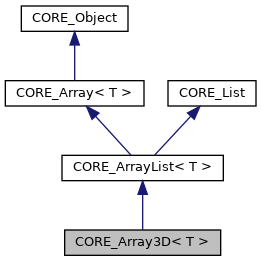
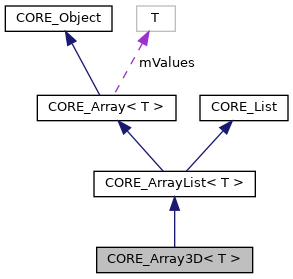
Public Member Functions | |
| CORE_Array3D () | |
| build an array of T* More... | |
| virtual | ~CORE_Array3D () |
| destroy an array of T* More... | |
| const T & | operator[] (const tUIndex &index) const |
| get the index-th element (i,j,k)= More... | |
| T & | operator[] (const tUIndex &index) |
| get the k-the element (i,j,k)=[i+Nx*(j+Ny*k)] index : index of element More... | |
| const T & | operator() (const tUIndex &i, const tUIndex &j, const tUIndex &k) const |
| get the index-th element (i,j,k)=[i+Nx*(j+Ny*k)] More... | |
| T & | operator() (const tUIndex &i, const tUIndex &j, const tUIndex &k) |
| get the index-th element (i,j,k)=[i+Nx*(j+Ny*k)] More... | |
| void | setSize (const tUIndex &n, const tUIndex &p, const tUIndex &q) |
| set the size of the array More... | |
| void | copy (const CORE_Array3D< T > &src) |
| void copy More... | |
| void | copy (const CORE_Array3D< T > *src) |
| void copy More... | |
| void | set (const tUIndex &i, const tUIndex &j, const tUIndex &k, const T &obj) |
| set the object at the index i More... | |
| virtual void | clear () |
| clear the array More... | |
| void | getSize (tUIndex &n, tUIndex &p, tUIndex &q) const |
| return the size of the array in each direction More... | |
| const tUIndex * | getSize () const |
| return the sizes of the array in each direction More... | |
| tString | toString () const |
| turn the array into string More... | |
| void | getSharedPointer (boost::shared_ptr< CORE_ArrayList< T > > &p) |
| return the shared pointer corresponding to the class with casting More... | |
| void | getSharedPointer (boost::shared_ptr< const CORE_ArrayList< T > > &p) const |
| return the shared pointer corresponding to the class whith casting More... | |
| void | getSharedPointer (boost::shared_ptr< CORE_Array< T > > &p) |
| return the shared pointer corresponding to the class with casting More... | |
| void | getSharedPointer (boost::shared_ptr< const CORE_Array< T > > &p) const |
| return the shared pointer corresponding to the class whith casting More... | |
| void | getSharedPointer (SP::CORE_Object &p) |
| get the shared pointer of this class into p More... | |
| void | getSharedPointer (SPC::CORE_Object &p) const |
| get the shared pointer of this class into p More... | |
| template<class Q > | |
| void | copy (const CORE_Array< Q > &f) |
| copy the array list f More... | |
| template<class Q > | |
| void | copy (const CORE_Array< Q > *f) |
| copy the array of the pointer More... | |
| void | setCapacityFactor (const tFlag &n) |
| set the capacity factor More... | |
| const tFlag & | getCapacityFactor () const |
| get the capacity factor More... | |
| void | setOrder (const tFlag &order) |
| set the oder More... | |
| const tFlag & | getOrder () const |
| get the oder More... | |
| template<class Q > | |
| void | push_back (const Q &v) |
| void | insertAtIndex (const tUIndex &i, const T &v) |
| insert the object at index i More... | |
| tUIndex | insert (const T &v) |
| insert the element in the array with respect to the order of the list More... | |
| tBoolean | remove (const T &v) |
| remove all the element with the value More... | |
| void | removeAtIndex (const tUIndex &i) |
| remove the element at index More... | |
| void | contractToLastElements (const tUIndex &n) |
| keep only the last n elements of the array and set its capacity also to n More... | |
| tBoolean | exists (const T &obj) const |
| return rtur if the value obj exists More... | |
| void | reverse () |
| reverse the array More... | |
| void | append (const CORE_ArrayList< T > &array) |
| add the arry list at the end More... | |
| void | sort (const tFlag &order) |
| sort the array in an increasing order obj[i-1] is obj[i] with respect to order More... | |
| void | sort () |
| sort the array in an increasing order obj[i-1] is obj[i] with respect to getOrder More... | |
| tBoolean | search (const T &value, tUIndex &index) |
| search the value in values vector ordered in order More... | |
| void | reserve (const tUIndex &cap) |
| reserve the capacity More... | |
| virtual void | fitToSize () |
| fit the array alocation exactly to size fit the allocation of the array to its size More... | |
| template<class Q > | |
| CORE_Array< T > & | operator+= (const Q &f) |
| This+=f. More... | |
| template<class Q > | |
| CORE_Array< T > & | operator-= (const Q &f) |
| This-=f. More... | |
| template<class Q > | |
| CORE_Array< T > & | operator*= (const Q &f) |
| This*=f. More... | |
| template<class Q > | |
| CORE_Array< T > & | operator/= (const Q &f) |
| This/=f. More... | |
| void | setSize (const tUIndex &n) |
| set the size More... | |
| template<class Q > | |
| void | initArray (const Q &f) |
| init the array to uniform value More... | |
| template<class Q > | |
| void | initArray (const tUIndex &p, const Q B[]) |
| init array to vector B with p-dimension More... | |
| template<class Q > | |
| void | initArray (const vector< Q > &B) |
| init array to vector B More... | |
| template<class Q > | |
| void | initArray (const tUIndex &from, const tUIndex &to, const Q &Bx, const Q &By, const Q &Bz) |
| init array to vector (Bx,By,Bz) with 3-dimension More... | |
| template<class Q > | |
| void | initArray (const tUIndex &from, const tUIndex &to, const tUIndex &p, const tUSInt &inc, const Q B[]) |
| init array to vector B with p-dimension More... | |
| template<class Q > | |
| void | initArray (const tUIndex &from, const tUIndex &to, const tUIndex &p, const Q B[]) |
| init array to vector B with p-dimension More... | |
| void | initArray (const tUIndex &from, const tString &values) |
| init array to values More... | |
| void | initArray (const tString &values) |
| init array to values More... | |
| template<class Q > | |
| tBoolean | setValuesByReference (const tUIndex &n, Q *array) |
| set the the values by reference More... | |
| template<class Q > | |
| tBoolean | transfertValuesByReference (CORE_Array< Q > &array) |
| transfert the values of the array into this More... | |
| template<class Q > | |
| void | setValues (const tUIndex &n, const Q *v) |
| set the values of the array by copying the n first values of pointer v More... | |
| template<class Q > | |
| void | setValues (const vector< Q > &v) |
| set the values of the array by copying the vector More... | |
| template<class Q > | |
| void | setValues (const CORE_Array< Q > &v) |
| copy the the values of v t o this More... | |
| void | setValue (const tUIndex &i, const T &v) |
| set the value of the array at index i More... | |
| void | set (const tUIndex &i, const T &v) |
| set the value of the array at index i More... | |
| template<class Q > | |
| void | set (const tReal &alpha, const CORE_Array< Q > &Y) |
| This+=alpha.Y. More... | |
| virtual tULLInt | getMemorySize () const |
| return the memory size in byte More... | |
| T & | get (const tUIndex &i) |
| get the value of the array at index i More... | |
| const T & | get (const tUIndex &i) const |
| get the value of the array at index i More... | |
| tString | getTypeToString () const |
| get the type name of the array More... | |
| template<class Q > | |
| void | add (const tReal &alpha, const CORE_Array< Q > &Y, const tReal &beta) |
| This=alpha.Y+beta.This. More... | |
| template<class Q > | |
| void | add (const tReal &alpha, const CORE_Array< Q > &Y) |
| This+=alpha.Y. More... | |
| template<class Q > | |
| void | add (const CORE_Array< Q > &Y) |
| This+=Y. More... | |
| template<class Q > | |
| void | sub (const tReal &alpha, const CORE_Array< Q > &Y) |
| This-=alpha.Y. More... | |
| template<class Q > | |
| void | sub (const CORE_Array< Q > &Y) |
| This-=Y. More... | |
| template<class Q > | |
| void | multiply (const CORE_Array< Q > &Y) |
| This[i]*=Y[i]. More... | |
| tReal | max (tUIndex &k) const |
| get the absolute mximum value of this More... | |
| tReal | norm2 () const |
| get the squared norm More... | |
| tReal | sum () const |
| get the sum of all the element More... | |
| template<class Q > | |
| tReal | dot (const CORE_Array< Q > &y) const |
| return s=<x,y> More... | |
| tReal | norm () const |
| get the norm More... | |
| template<class Q > | |
| tReal | distance2 (const CORE_Array< Q > &y) const |
| return distance squared More... | |
| template<class Q > | |
| tReal | distanceMax (const CORE_Array< Q > &y, tUIndex &k) const |
| return the max of distance More... | |
| template<class Q > | |
| tReal | distanceMax (const CORE_Array< Q > &y) const |
| return the max of distance More... | |
| template<class Q > | |
| tReal | distance (const CORE_Array< Q > &y) const |
| get the distance More... | |
| const T & | getLastElement () const |
| get last element for reading More... | |
| T & | getLastElement () |
| get last element for writing More... | |
| const T * | getValues () const |
| get the values of the array for reading More... | |
| T * | getValues () |
| get the values of the array for writing More... | |
| const T * | getValues (tUIndex &n) const |
| get the values of the array for reading More... | |
| T * | getValues (tUIndex &n) |
| get the values of the array for writing More... | |
| T & | getValue (const tUIndex &i) |
| get the values of the array for writing More... | |
| const T & | getValue (const tUIndex &i) const |
| get the values of the array for reading More... | |
| void | swap (CORE_Array< T > &f) |
| swap the tow arrays param[in,out] f : the array to swap with More... | |
| tUIndex & | getSize () |
| return the size of the array for writing More... | |
| tString | getClassName () const |
| return the class name of the object More... | |
| tString | getIdentityString () const |
| return the identity string of the object of the form className_at_address More... | |
| tString | getPointerAddress () const |
| return the identity string of the object More... | |
| template<class T > | |
| tBoolean | isInstanceOf () const |
| test if the clas T is an instance of this class More... | |
| tBoolean | isInstanceOf (const tString &name) const |
| test if the object is an instance of className More... | |
Static Public Member Functions | |
| static boost::shared_ptr< CORE_Array3D< T > > | New () |
| New constructor. return a shared pointer of CORE_Array3D. More... | |
| static boost::shared_ptr< CORE_ArrayList< T > > | New (const tUIndex &n) |
| return a CORE_Array shared pointer More... | |
| static tFlag | reverse (const tFlag &oder) |
| return the reverse order More... | |
| static void | sort (T *items, const tUIndex &N, const tFlag &order) |
| sort the array pointer More... | |
| static tBoolean | search (const T *values, const tUIndex &n, const tFlag &order, const T &value, tUIndex &index) |
| search the value in values array ordered in order More... | |
| static void | setIsMemoryChecked (const tBoolean &v) |
| set if the memory checking is used More... | |
| static void | setOut (SP::CORE_Out out) |
| set the output stream More... | |
| static void | resetOut () |
| reset the output stream More... | |
| static void | setThread (SP::CORE_Thread thread) |
| set the thread More... | |
| static void | resetThread () |
| reset the output stream More... | |
| static CORE_Out & | out () |
| get the output More... | |
| static SP::CORE_Out | getOut () |
| get the output More... | |
| static CORE_Thread & | getThread () |
| get the profilier More... | |
| static const tBoolean & | isMemoryChecked () |
| get if the memory checking is used More... | |
| static tString | getClassName (const tString &identityString) |
| return the class name of the object More... | |
| template<class T > | |
| static tString | getTypeName () |
| get type name More... | |
| static tBoolean | is64Architecture () |
| return true if the machine is a 64 bits machine More... | |
| static tBoolean | is32Architecture () |
| return true if the machine is a 32 bits machine More... | |
| static tString | pointer2String (const void *obj) |
| return the string representation of a pointer More... | |
| static void | printObjectsInMemory (ostream &f) |
| print object in memory More... | |
| static void | printObjectsInMemory () |
| print object in memory in the standart output More... | |
| static tChar | getMaxChar () |
| get the max value for tChar type More... | |
| static tChar | getMinChar () |
| get the min value for tChar type More... | |
| static tUChar | getMaxUChar () |
| get the max value for tUChar type More... | |
| static tUChar | getMinUChar () |
| get the min value for tUChar type More... | |
| static tSInt | getMaxSInt () |
| get the max value for tSInt type More... | |
| static tSInt | getMinSInt () |
| get the min value for tSInt type More... | |
| static tUSInt | getMaxUSInt () |
| get the max value for tUSInt type More... | |
| static tUSInt | getMinUSInt () |
| get the min value for tUSInt type More... | |
| static tInt | getMaxInt () |
| get the max value for tInt type More... | |
| static tInt | getMinInt () |
| get the min value for tInt type More... | |
| static tUInt | getMaxUInt () |
| get the max value for tUInt type More... | |
| static tUInt | getMinUInt () |
| get the min value for tUInt type More... | |
| static tLInt | getMaxLInt () |
| get the max value for tLInt type More... | |
| static tLInt | getMinLInt () |
| get the min value for tLInt type More... | |
| static tULInt | getMaxULInt () |
| get the max value for tULInt type More... | |
| static tULInt | getMinULInt () |
| get the min value for tULInt type More... | |
| static tLLInt | getMaxLLInt () |
| get the max value for tULInt type More... | |
| static tLLInt | getMinLLInt () |
| get the min value for tLLInt type More... | |
| static tULLInt | getMaxULLInt () |
| get the max value for tULLInt type More... | |
| static tULLInt | getMinULLInt () |
| get the min value for tULLInt type More... | |
| static tFloat | getMaxFloat () |
| get the max value for tFloat type More... | |
| static tFloat | getMinFloat () |
| get the min value for tFloat type More... | |
| template<class T > | |
| static T | getEpsilon () |
| get the epsilon value for T type More... | |
| template<class T > | |
| static T | getInfinity () |
| get the infinity for T type More... | |
| static tFloat | getFloatEpsilon () |
| get the epsilon value for tFloat type More... | |
| static tFloat | getFloatInfinity () |
| get the infinity value for tFloat type More... | |
| static tDouble | getMaxDouble () |
| get the max value for tDouble type More... | |
| static tDouble | getMinDouble () |
| get the min value for tDouble type More... | |
| static tDouble | getDoubleInfinity () |
| get the infinity value for tFloat type More... | |
| static tDouble | getDoubleEpsilon () |
| get the epsilon value for tDouble type More... | |
| static tLDouble | getMinLDouble () |
| get the min value for tLDouble type More... | |
| static tLDouble | getMaxLDouble () |
| get the max value for tLDouble type More... | |
| static tLDouble | getLDoubleEpsilon () |
| get the epsilon value for tLDouble type More... | |
| static tDouble | getLDoubleInfinity () |
| get the infinity value for tDouble type More... | |
| static tIndex | getMaxIndex () |
| get the max value for the array/vector indexing type More... | |
| static tIndex | getMinIndex () |
| get the min value for the array/vector indexing type More... | |
| static tUIndex | getMaxUIndex () |
| get the max value for difference the array/vector indexing type More... | |
| static tUIndex | getMinUIndex () |
| get the min value for difference the array/vector indexing type More... | |
| static tFlag | getMaxFlag () |
| get the max value for the tFlag type More... | |
| static tFlag | getMinFlag () |
| get the min value for the tFlag type More... | |
| static tUInteger | getMaxUInteger () |
| get the max value for the unsigned integer type More... | |
| static tUInteger | getMinUInteger () |
| get the min value for the unsigned integer type More... | |
| static tInteger | getMaxInteger () |
| get the max value for the integer type More... | |
| static tInteger | getMinInteger () |
| get the min value for the integer type More... | |
| static tReal | getMaxReal () |
| get the max value for the real type More... | |
| static tReal | getMinReal () |
| get the min value for the real type More... | |
| static tReal | getRealEpsilon () |
| get the eps which is the difference between 1 and the least value greater than 1 that is representable. More... | |
| static tReal | getRealInfinity () |
| get the infinity value More... | |
| template<class T > | |
| static T | computeEpsilon () |
| compute epsilon More... | |
| template<class Q > | |
| static tBoolean | compare (const Q &a, const Q &b, const tFlag &order) |
| compare 2 object a & b More... | |
| static tBoolean | compareString (const tString &a, const tString &b, const tFlag &order) |
| compare 2 string a & b More... | |
Static Public Attributes | |
| static const tFlag | NO_ORDER =0 |
| static const tFlag | EQ =1 |
| static const tFlag | NEQ =2 |
| static const tFlag | LT =3 |
| = More... | |
| static const tFlag | LE =4 |
| static const tFlag | GT =5 |
| static const tFlag | GE =6 |
Protected Member Functions | |
| const tUIndex & | getCapacity () const |
| get the capacity More... | |
| void | setThis (SP::CORE_Object p) |
| set this weak shared pointer called toDoAfterThis setting method More... | |
| virtual void | toDoAfterThisSetting () |
| method called after setThis() method this method can oly be called once. More... | |
Private Attributes | |
| tUIndex | mSize [3] |
Detailed Description
template<class T>
class CORE_Array3D< T >
this class describes an array of arrays stored as follow:
the index at element (i,j,k) is stored as index i+Nx*(j+Ny*k)
Constructor & Destructor Documentation
◆ CORE_Array3D()
| CORE_Array3D< T >::CORE_Array3D | ( | ) |
build an array of T*
References CORE_Array3D< T >::mSize, and tUSInt.
◆ ~CORE_Array3D()
|
virtual |
destroy an array of T*
Member Function Documentation
◆ add() [1/3]
|
inlineinherited |
This=alpha.Y+beta.This.
- Parameters
-
alpha real value Y array value beta real value
Referenced by CORE_Array< tCellFlag >::add(), EMM_WaveFEMTest::computeWaveAtFirstTime(), CORE_SharedPointersListVMap< Key, Value >::getKeys(), CORE_Map< Key, Value >::getKeys(), and CORE_Array< tCellFlag >::sub().

◆ add() [2/3]
|
inlineinherited |
This+=alpha.Y.
- Parameters
-
alpha real value Y array value
◆ add() [3/3]
|
inlineinherited |
This+=Y.
- Parameters
-
Y array value
◆ append()
|
inherited |
add the arry list at the end
Referenced by CORE_ArrayList< tString >::exists().

◆ clear()
|
inlinevirtual |
clear the array
Reimplemented from CORE_ArrayList< T >.
References CORE_Array3D< T >::setSize().
Referenced by CORE_Array3D< T >::copy().


◆ compare()
|
inlinestaticinherited |
compare 2 object a & b
- Parameters
-
a the first object to compare b : the second object to compare order the type of order in EQ,NEQ,LT,LE,GT,GE (=,!=,<,<=,>,>=)
- Returns
- the comparison between a and b with respect to order
Referenced by CORE_List::compareString(), CORE_ArrayList< tString >::insert(), CORE_Vector< T >::search(), CORE_ArrayList< tString >::sort(), and CORE_Vector< T >::sort().

◆ compareString()
|
inlinestaticinherited |
compare 2 string a & b
- Parameters
-
a the first string to compare b : the second string to compare order the type of order in EQ,NEQ,LT,LE,GT,GE (=,!=,<,<=,>,>=)
- Returns
- the comparison between a and b with respect to order
References CORE_List::compare(), CORE_List::reverse(), and tFlag.

◆ computeEpsilon()
|
inlinestaticinherited |
compute epsilon
- Returns
- the epsilon value eps=10^{-p/3} where p is defined by getEpsilon()=10^{-p}
◆ contractToLastElements()
|
inherited |
keep only the last n elements of the array and set its capacity also to n
- Parameters
-
n the number of element to kepp
Referenced by CORE_ArrayList< tString >::clear().

◆ copy() [1/4]
| void CORE_Array3D< T >::copy | ( | const CORE_Array3D< T > & | src | ) |
void copy
References CORE_Array3D< T >::getSize(), CORE_Array3D< T >::mSize, and CORE_Array< T >::setValues().
Referenced by CORE_Array3D< T >::copy(), and CORE_Array3D< T >::New().


◆ copy() [2/4]
|
inline |
void copy
References CORE_Array3D< T >::clear(), CORE_Array3D< T >::copy(), and null.

◆ copy() [3/4]
|
inlineinherited |
copy the array list f
- Parameters
-
f : the array list to copy
Referenced by CORE_StringArrayList::operator=(), and CORE_ArrayList< tString >::operator=().

◆ copy() [4/4]
|
inlineinherited |
copy the array of the pointer
- Parameters
-
f : pointer to the array to copy
◆ distance()
|
inlineinherited |
get the distance
- Returns
- |This-Y|
◆ distance2()
|
inlineinherited |
return distance squared
- Returns
- |This-Y|\^2
Referenced by CORE_Array< tCellFlag >::distance().

◆ distanceMax() [1/2]
|
inlineinherited |
return the max of distance
- Parameters
-
y the array to compute the max distance to This k the index where the distance is max
- Returns
- the max of distance for each point
Referenced by CORE_Array< tCellFlag >::distanceMax().

◆ distanceMax() [2/2]
|
inlineinherited |
return the max of distance
- Parameters
-
y the array to compute the max distance to This
- Returns
- the max of distance for each point
◆ dot()
|
inlineinherited |
return s=<x,y>
- Returns

◆ exists()
|
inlineinherited |
return rtur if the value obj exists
- Parameters
-
obj the value to search
- Returns
- true if the value obj exist
◆ fitToSize()
|
virtualinherited |
fit the array alocation exactly to size fit the allocation of the array to its size
Reimplemented in CORE_Array2D< T >.
Referenced by CORE_ArrayList< tString >::contractToLastElements(), CORE_Array2D< T >::fitToSize(), EMMG_RealField::fitToSize(), CORE_MorseArray< tUChar >::fitToSize(), EMM_MatterField::getMatterParameterDistribution(), CORE_MorseArray< tUChar >::MergeMorseArray(), CORE_MorseArray< tUChar >::MergeMorseArrays(), and CORE_Array< tCellFlag >::reserve().
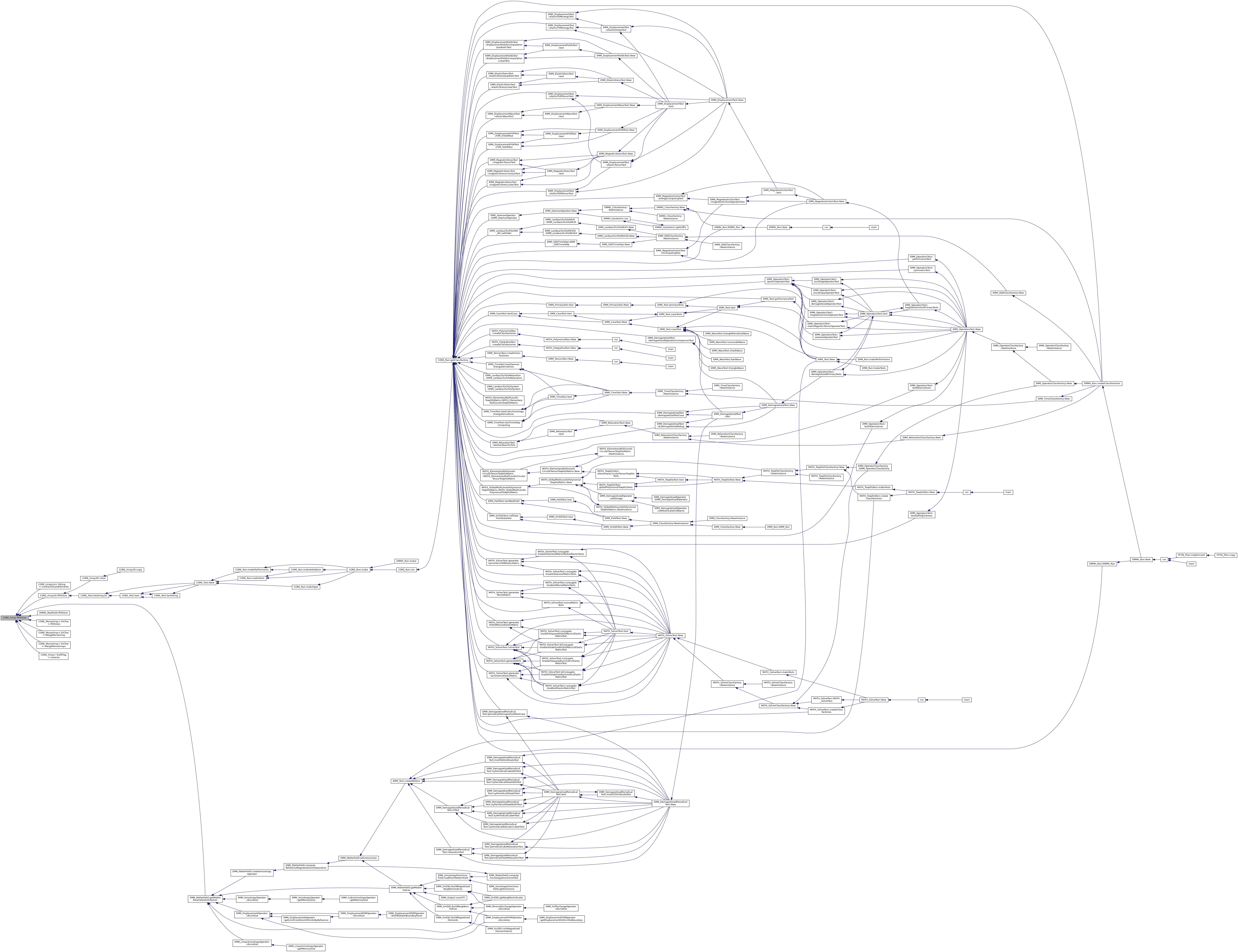
◆ get() [1/2]
|
inlineinherited |
get the value of the array at index i
- Parameters
-
i index of the array
- Returns
- the value at index i for writing
Referenced by EMM_ZeemanOperator::computeEnergy(), EMM_ZeemanOperator::computeEnergyWithMagneticExcitation(), EMM_TensorsTest::doubleDotCrossDoubleDotScalarTests(), CORE_MorseArray< tUChar >::getIndices(), EMM_DisplacementOperator::getLimitConditionOnPoints(), EMM_MassMatrix::getLimitConditionPoints(), EMM_Grid3D::getNeighborsIndicators(), MATH_GaussLegendreIntegration::getPoints(), EMM_LandauLifschitzSystem::getSigma(), MATH_GaussLegendreIntegration::getWeights(), and EMM_RelaxationTest::testNewM().
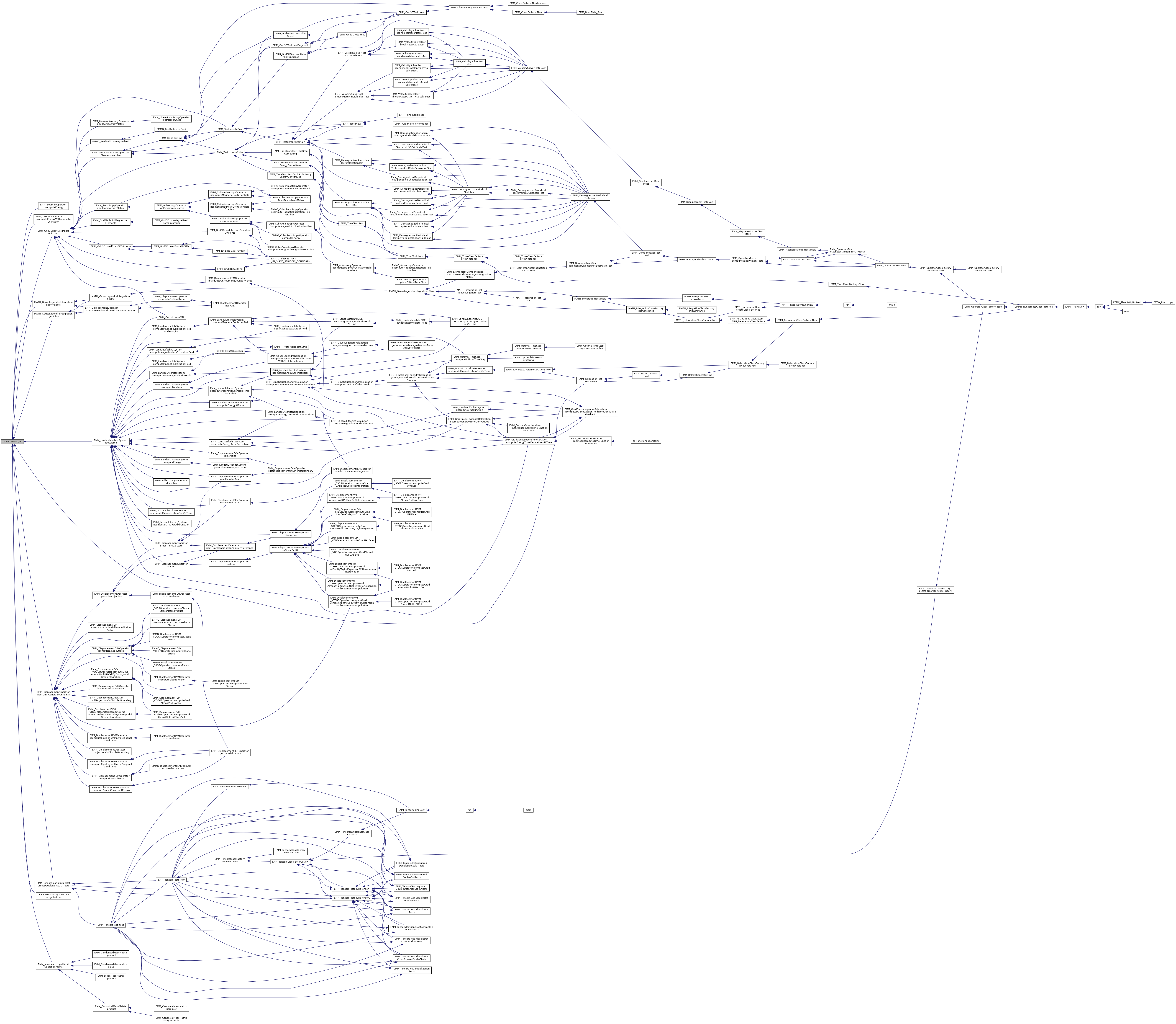
◆ get() [2/2]
|
inlineinherited |
get the value of the array at index i
- Parameters
-
i index of the array
- Returns
- the value at index i for reading
◆ getCapacity()
|
inlineprotectedinherited |
get the capacity
Referenced by CORE_ArrayList< tString >::append(), CORE_ArrayList< tString >::insertAtIndex(), CORE_ArrayList< tString >::push_back(), and CORE_Array< tCellFlag >::transfertValuesByReference().
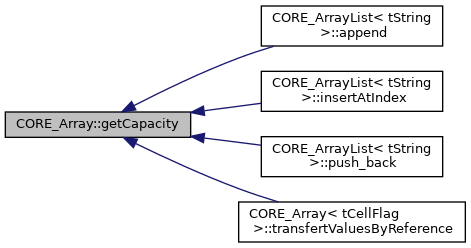
◆ getCapacityFactor()
|
inlineinherited |
get the capacity factor
Referenced by CORE_ArrayList< tString >::copy().

◆ getClassName() [1/2]
|
inherited |
return the class name of the object
- Returns
- the class name of the object
References tString.
Referenced by CORE_Object::getIdentityString(), EMM_Operator::getName(), and CORE_Object::isMemoryChecked().

◆ getClassName() [2/2]
return the class name of the object
- Parameters
-
identityString the identity string of the object
- Returns
- the class name
◆ getDoubleEpsilon()
|
inlinestaticinherited |
get the epsilon value for tDouble type
- Returns
- the epsilon value for tDouble type
Referenced by CORE_Test::testType().
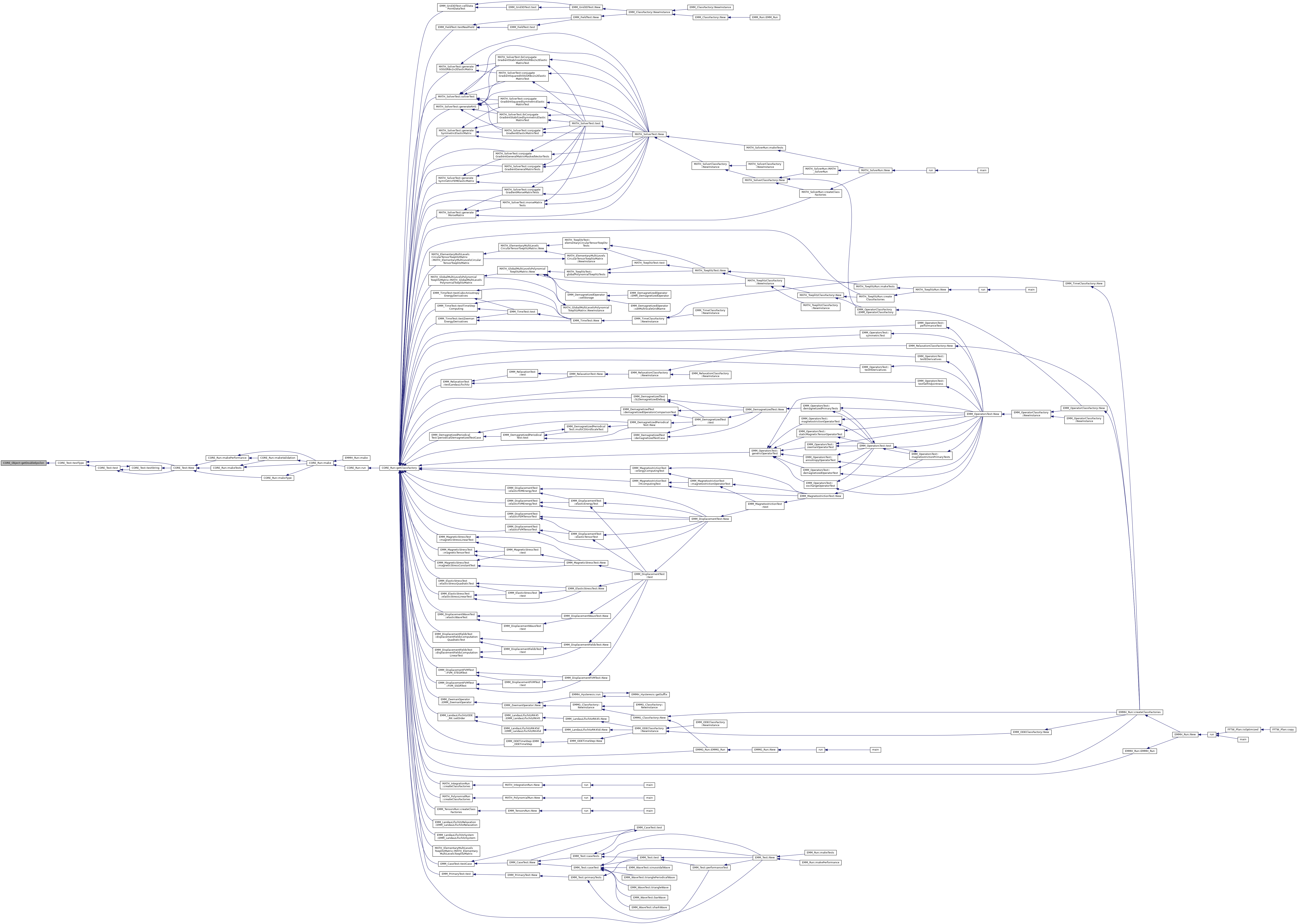
◆ getDoubleInfinity()
|
inlinestaticinherited |
get the infinity value for tFloat type
- Returns
- the intinity value for tFloat type
◆ getEpsilon()
|
inlinestaticinherited |
get the epsilon value for T type
- Returns
- the epsilon value for T type
◆ getFloatEpsilon()
|
inlinestaticinherited |
get the epsilon value for tFloat type
- Returns
- the epsilon value for tFloat type
Referenced by CORE_Test::testType().
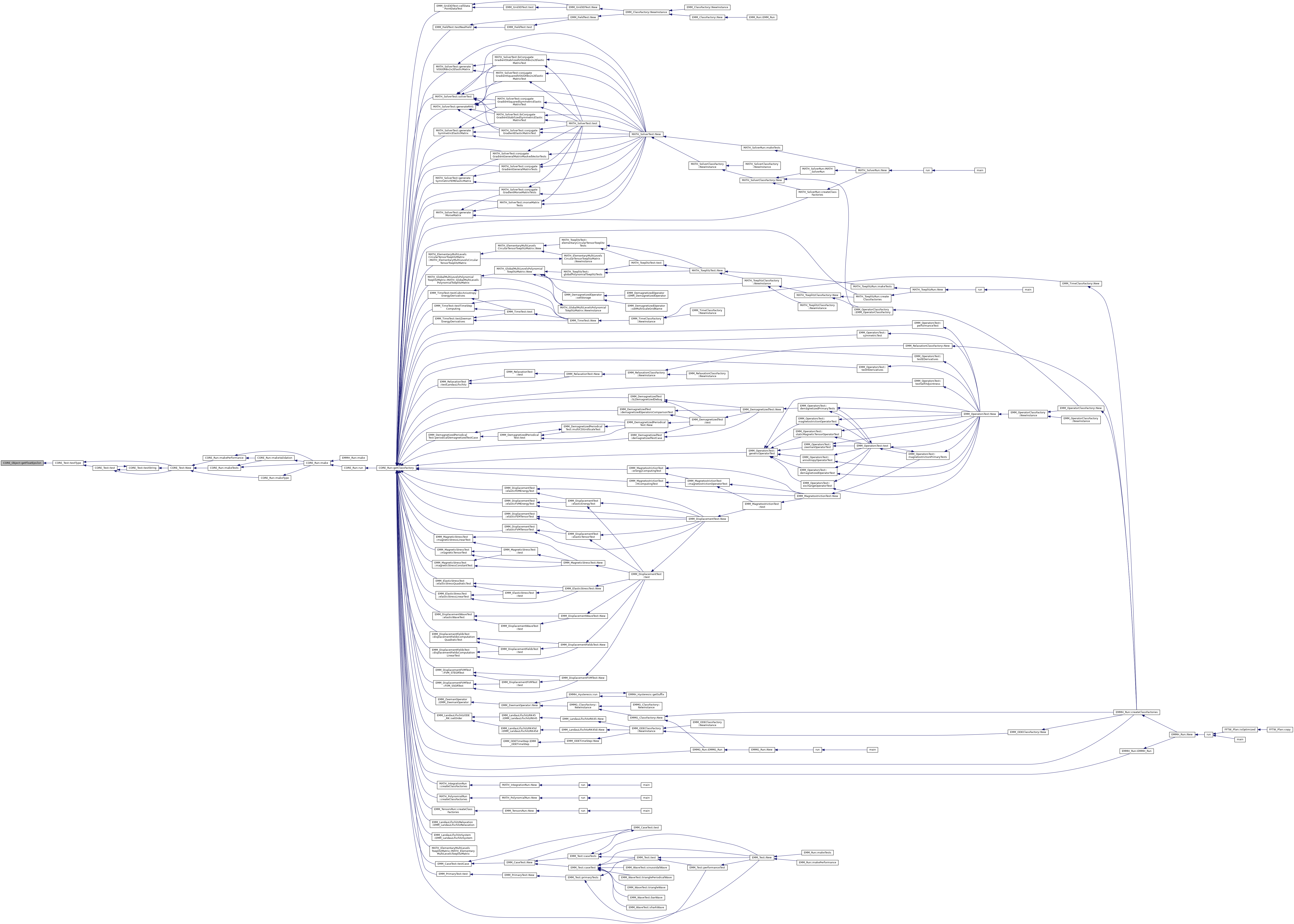
◆ getFloatInfinity()
|
inlinestaticinherited |
get the infinity value for tFloat type
- Returns
- the intinity value for tFloat type
◆ getIdentityString()
|
inlineinherited |
return the identity string of the object of the form className_at_address
- Returns
- the identity string of the object
References CORE_Object::getClassName(), CORE_Object::pointer2String(), and tString.
Referenced by MATH_GaussLegendreIntegration::copy(), EMM_MultiScaleGrid::initialize(), CORE_Object::isInstanceOf(), CORE_Object::printObjectsInMemory(), MATH_Matrix::toString(), EMMG_SLPeriodicMultiScale::toString(), EMM_Stepper::toString(), EMM_AnisotropyDirectionsField::toString(), EMM_BlockMassMatrix::toString(), CORE_Object::toString(), EMM_Tensors::toString(), EMM_MultiScaleGrid::toString(), EMM_MatterField::toString(), EMM_Grid3D::toString(), and EMM_LandauLifschitzSystem::toString().


◆ getInfinity()
|
inlinestaticinherited |
get the infinity for T type
- Returns
- the infinity value for T type
◆ getLastElement() [1/2]
|
inlineinherited |
get last element for reading
- Returns
- the last element of the array whose size must be > 0
Referenced by CORE_Test::testArray().
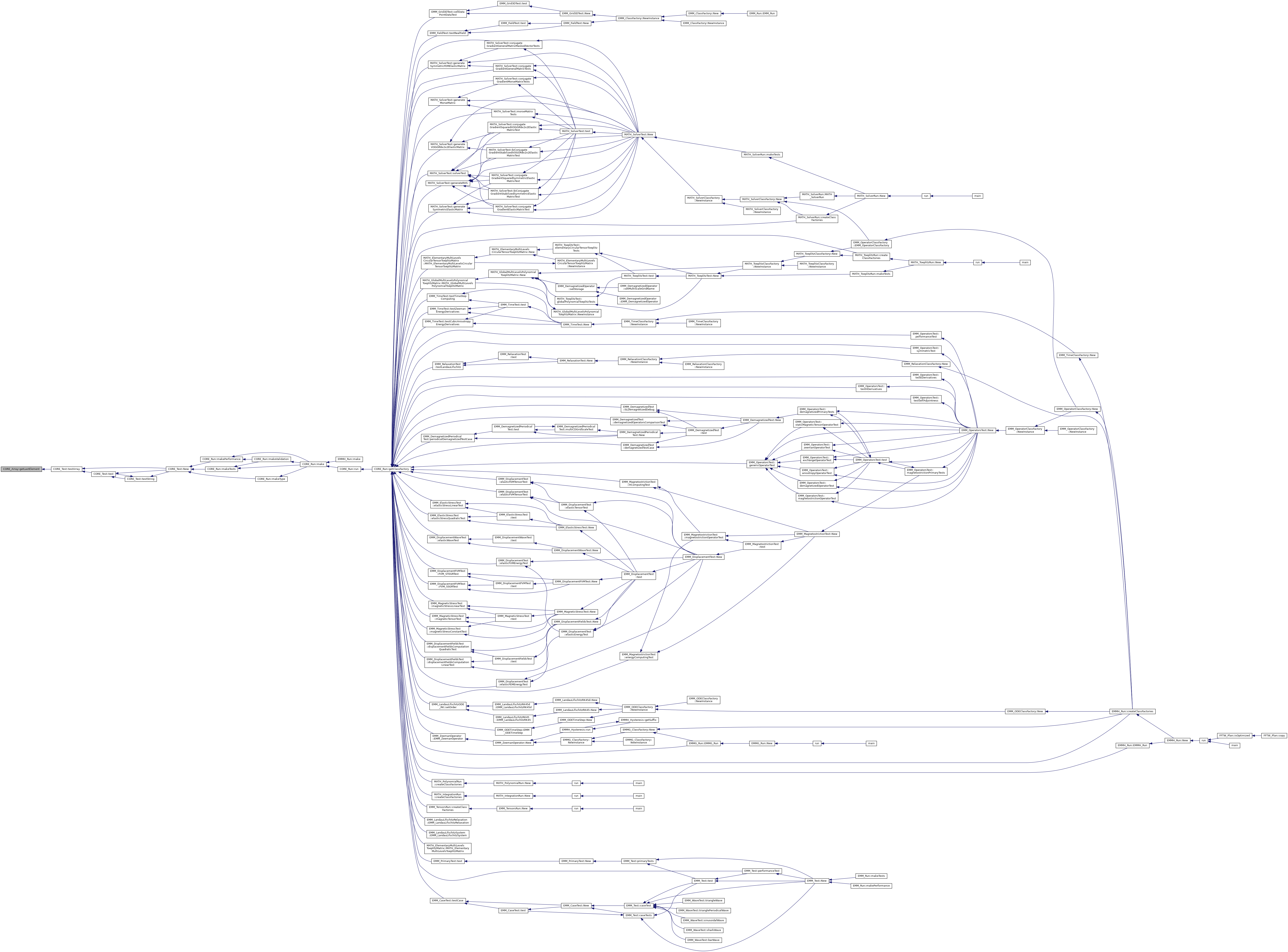
◆ getLastElement() [2/2]
|
inlineinherited |
get last element for writing
- Returns
- the last element of the array whose size must be > 0
◆ getLDoubleEpsilon()
|
inlinestaticinherited |
get the epsilon value for tLDouble type
- Returns
- the epsilon value for tLDouble type
Referenced by CORE_Test::testType().

◆ getLDoubleInfinity()
|
inlinestaticinherited |
get the infinity value for tDouble type
- Returns
- the infinity value for tDouble type
◆ getMaxChar()
|
inlinestaticinherited |
get the max value for tChar type
- Returns
- the max value for tChar type
Referenced by CORE_Test::testType().

◆ getMaxDouble()
|
inlinestaticinherited |
get the max value for tDouble type
- Returns
- the max value for tDouble type
Referenced by CORE_Test::testType().
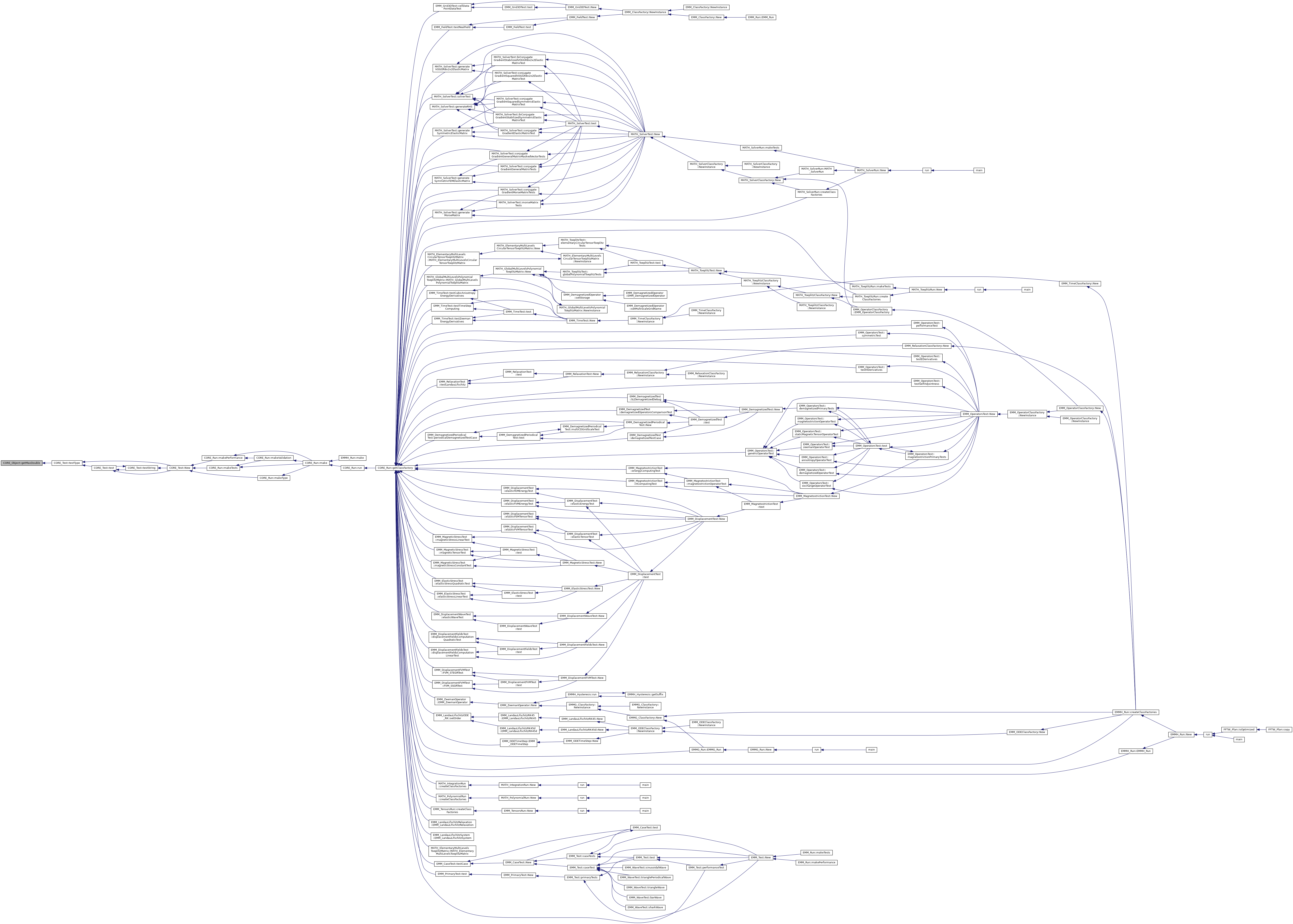
◆ getMaxFlag()
|
inlinestaticinherited |
get the max value for the tFlag type
- Returns
- the max value for the tFlag type
Referenced by CORE_Test::testType().

◆ getMaxFloat()
|
inlinestaticinherited |
get the max value for tFloat type
- Returns
- the max value for tFloat type
Referenced by CORE_Test::testType().
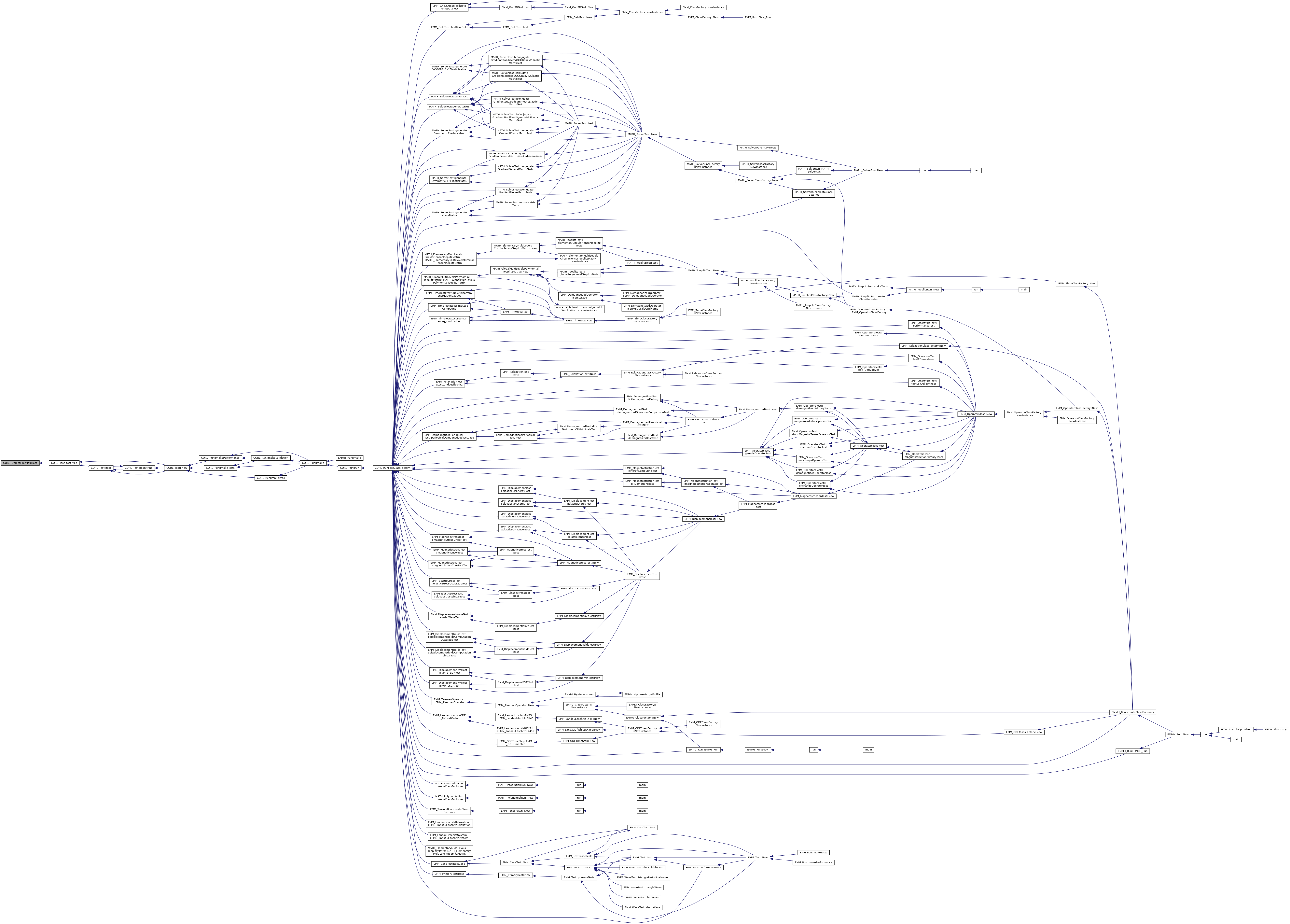
◆ getMaxIndex()
|
inlinestaticinherited |
get the max value for the array/vector indexing type
- Returns
- the max value for the array/vector indexing type
Referenced by CORE_Test::testType().
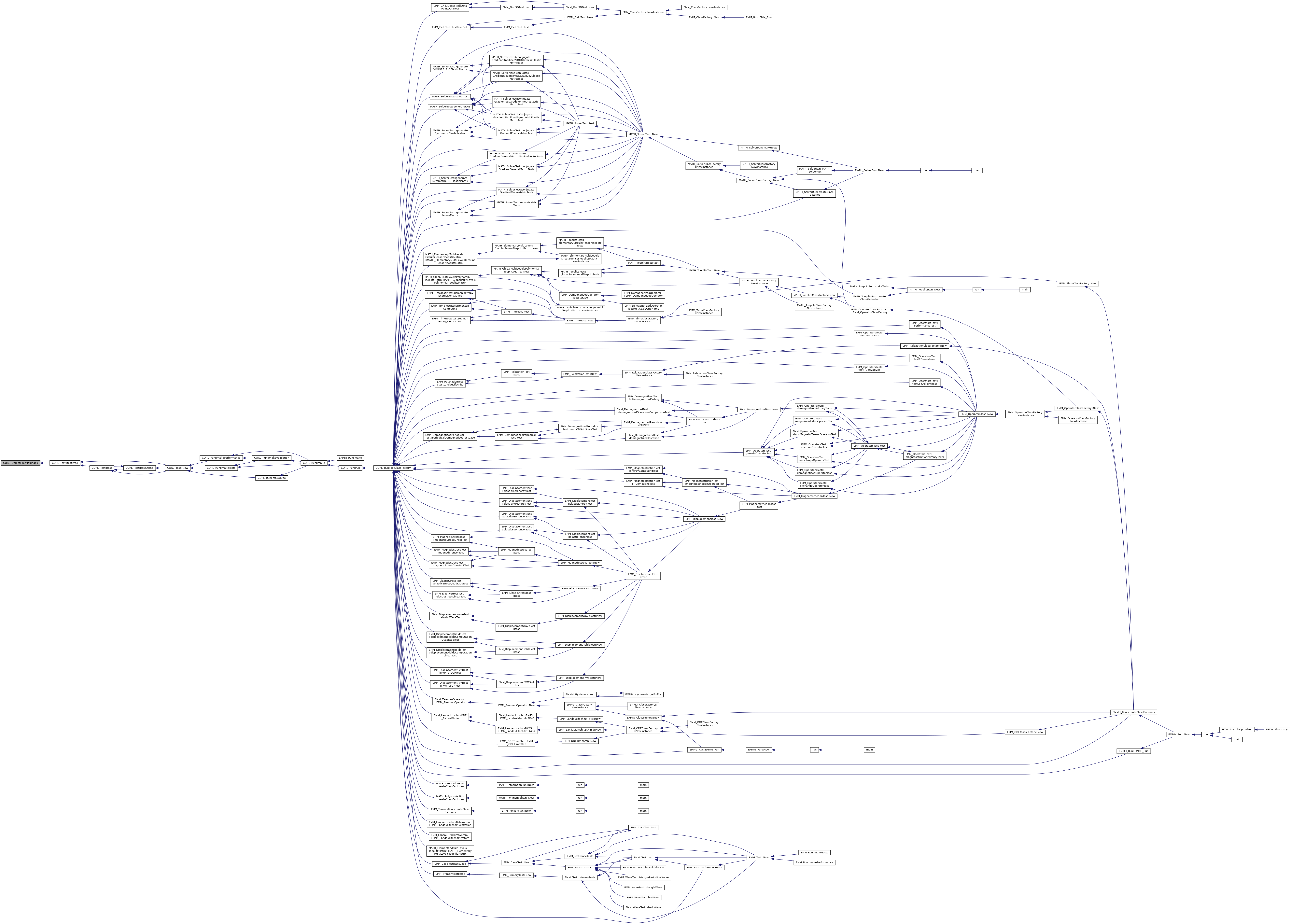
◆ getMaxInt()
|
inlinestaticinherited |
get the max value for tInt type
- Returns
- the max value for tInt type
Referenced by MATSGN_FFT::fastFourierTransform3D_FFTW(), and CORE_Test::testType().

◆ getMaxInteger()
|
inlinestaticinherited |
get the max value for the integer type
- Returns
- the max value for the integer type
Referenced by CORE_Test::testType().
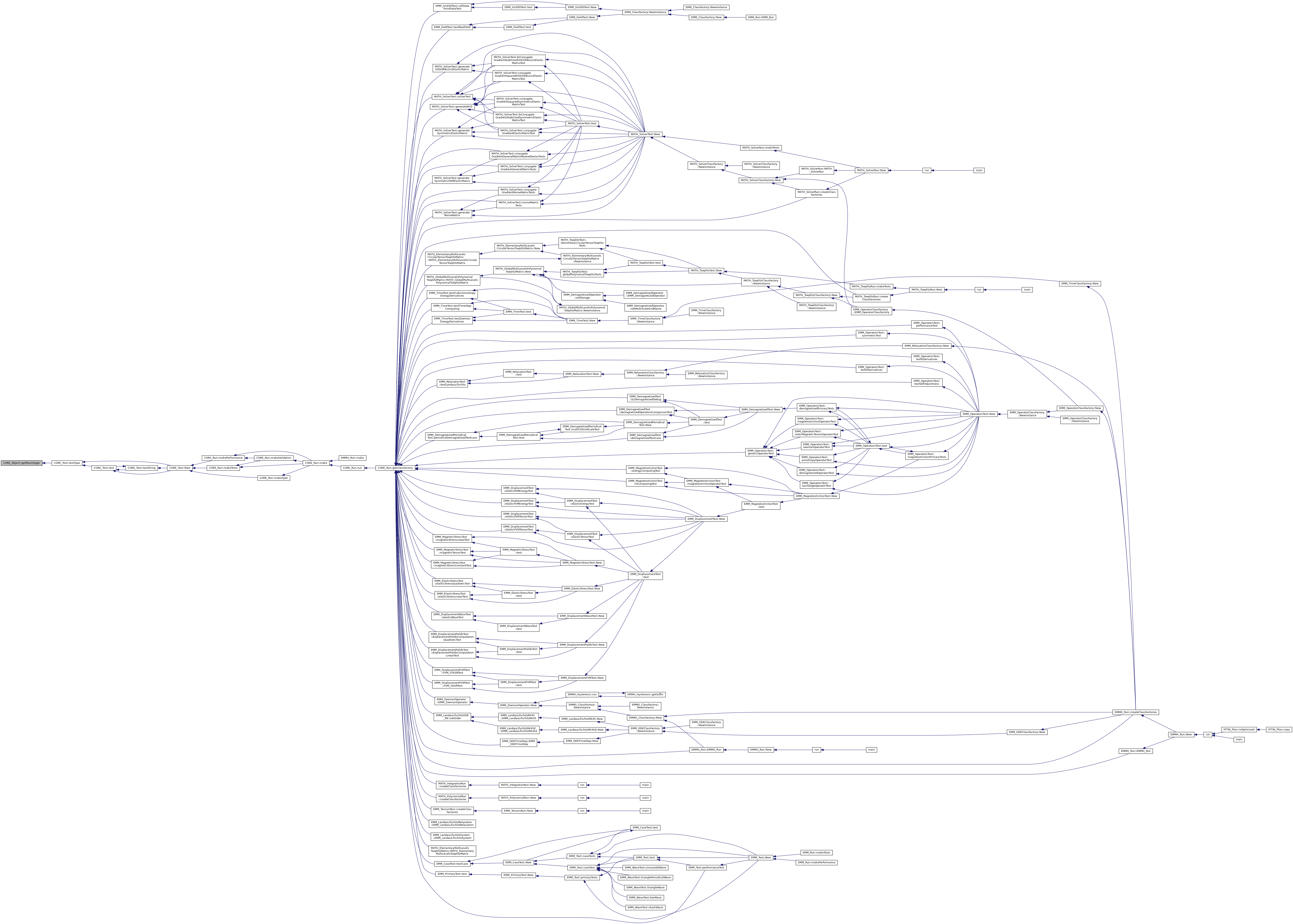
◆ getMaxLDouble()
|
inlinestaticinherited |
get the max value for tLDouble type
- Returns
- the max value for tLDouble type
Referenced by CORE_Test::testType().
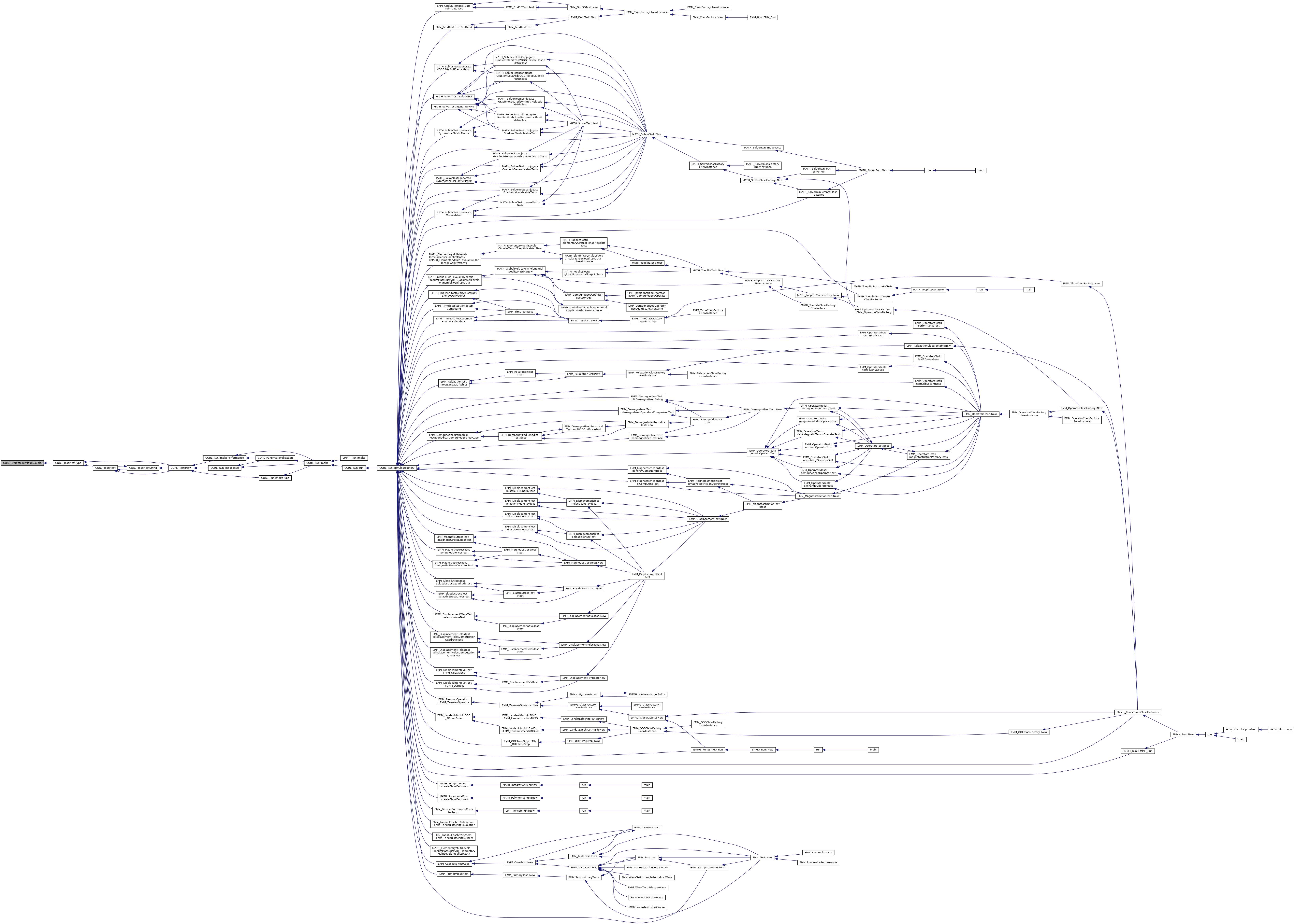
◆ getMaxLInt()
|
inlinestaticinherited |
get the max value for tLInt type
- Returns
- the max value for tLInt type
Referenced by CORE_Test::testType().

◆ getMaxLLInt()
|
inlinestaticinherited |
get the max value for tULInt type
- Returns
- the max value for tULInt type
Referenced by CORE_Test::testType().
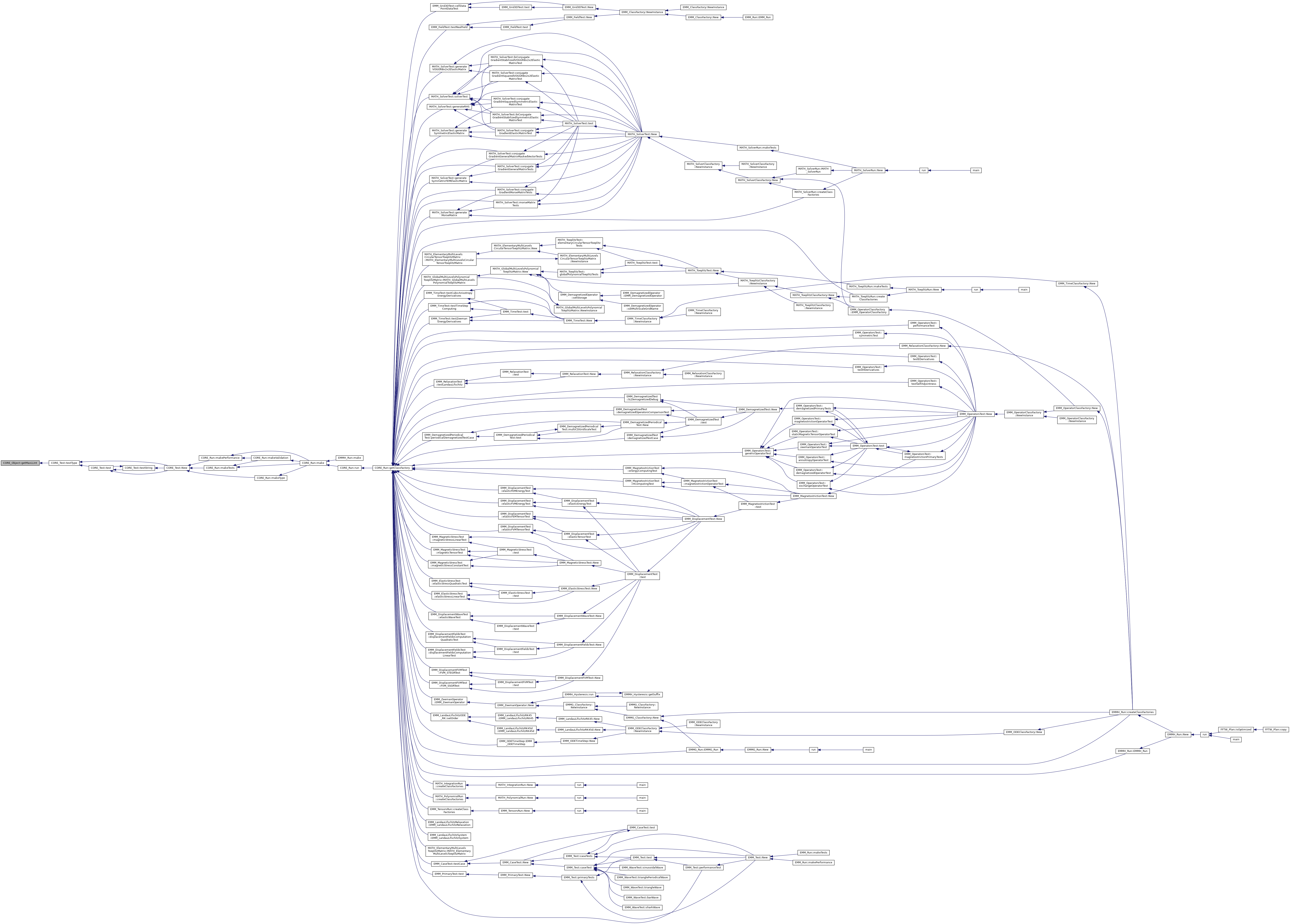
◆ getMaxReal()
|
inlinestaticinherited |
get the max value for the real type
- Returns
- he max value for the real type
Referenced by EMM_MatterField::adimensionize(), and CORE_Test::testType().

◆ getMaxSInt()
|
inlinestaticinherited |
get the max value for tSInt type
- Returns
- the max value for tSInt type
Referenced by CORE_Test::testType().
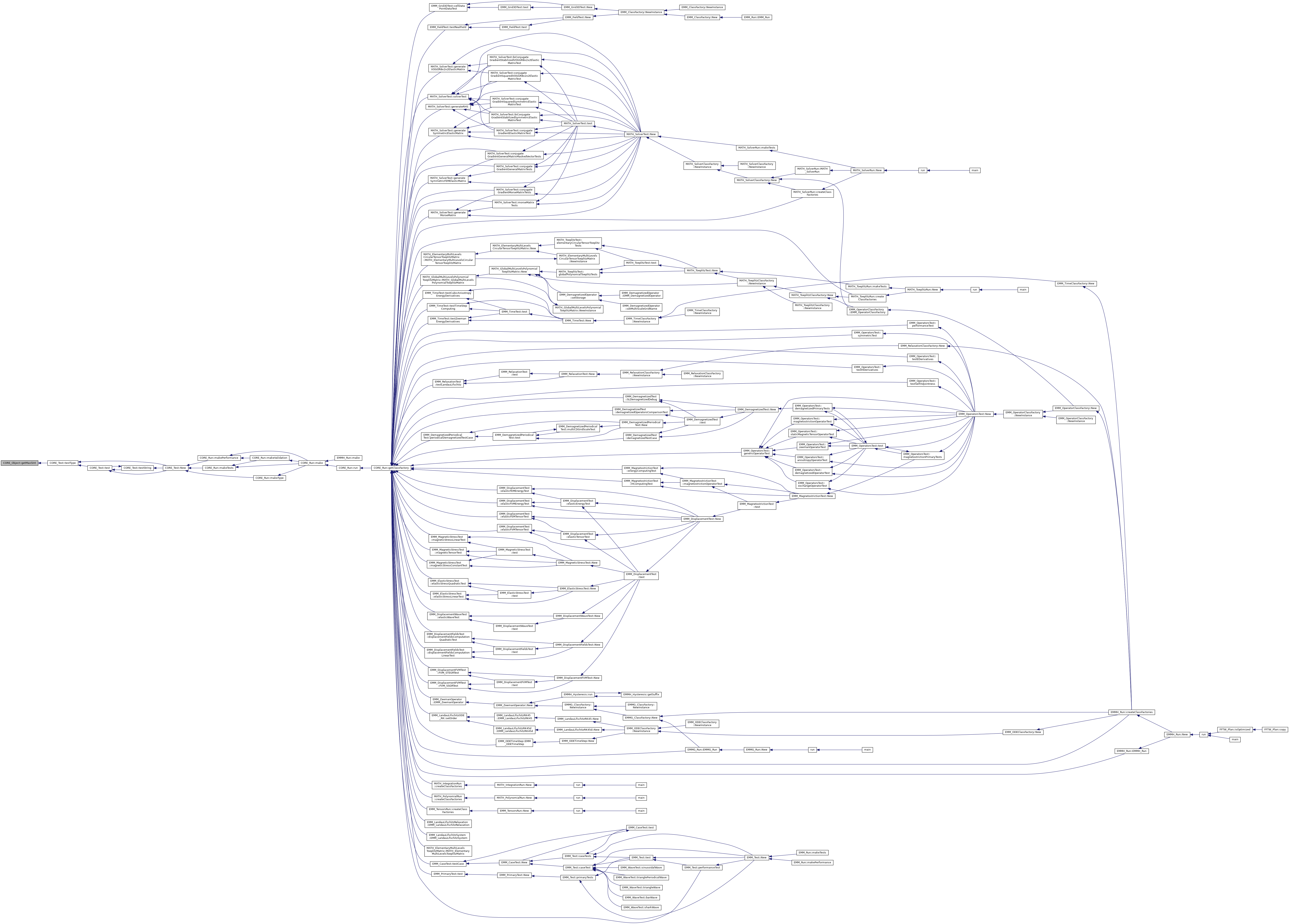
◆ getMaxUChar()
|
inlinestaticinherited |
get the max value for tUChar type
- Returns
- the max value for tUChar type
Referenced by CORE_Test::testType().
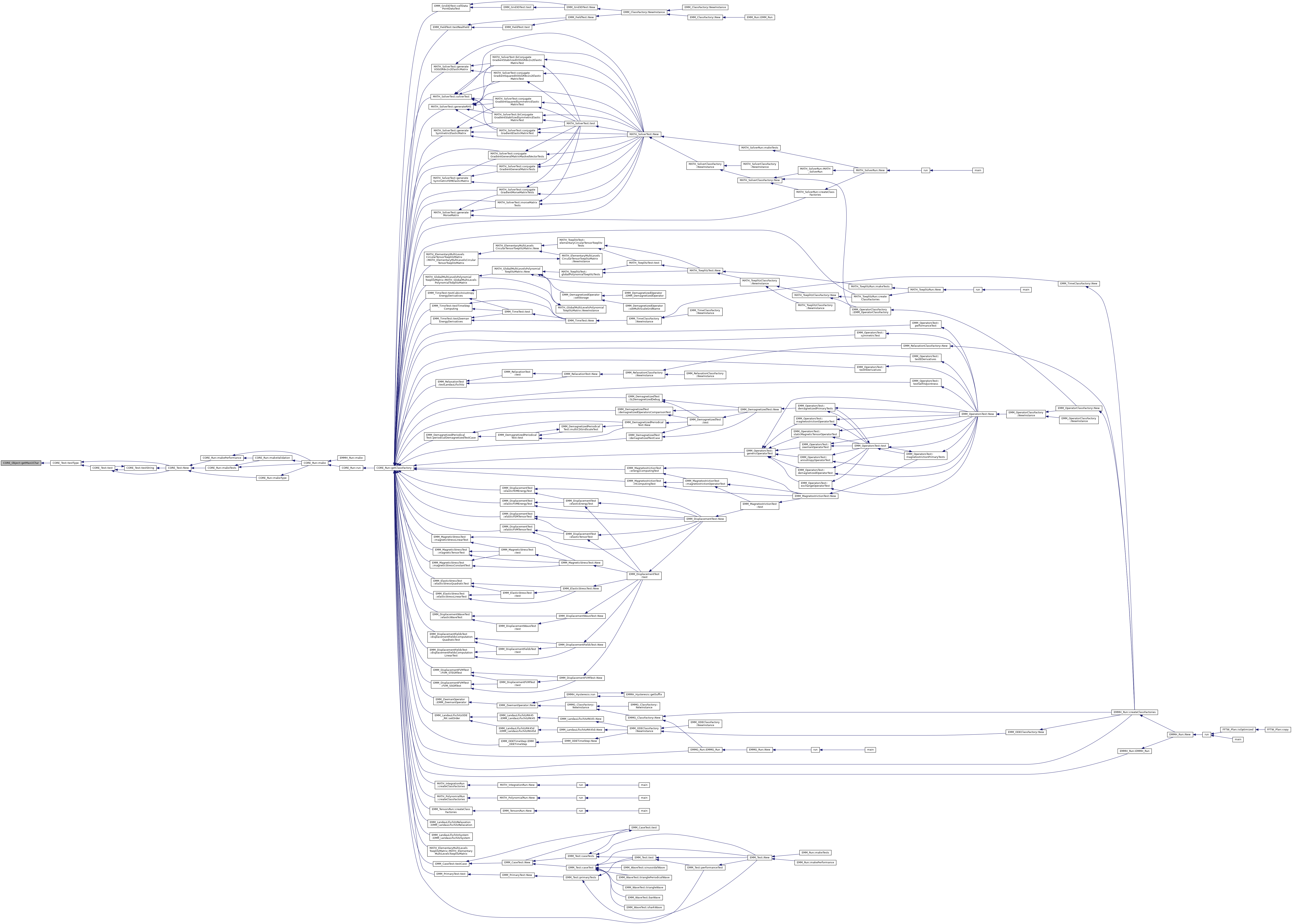
◆ getMaxUIndex()
|
inlinestaticinherited |
get the max value for difference the array/vector indexing type
- Returns
- the max value for difference the array/vector indexing type
Referenced by CORE_Vector< T >::addAfterIndices(), CORE_Vector< T >::search(), CORE_Test::testType(), CORE_Integer::toHexString(), and CORE_Integer::toString().
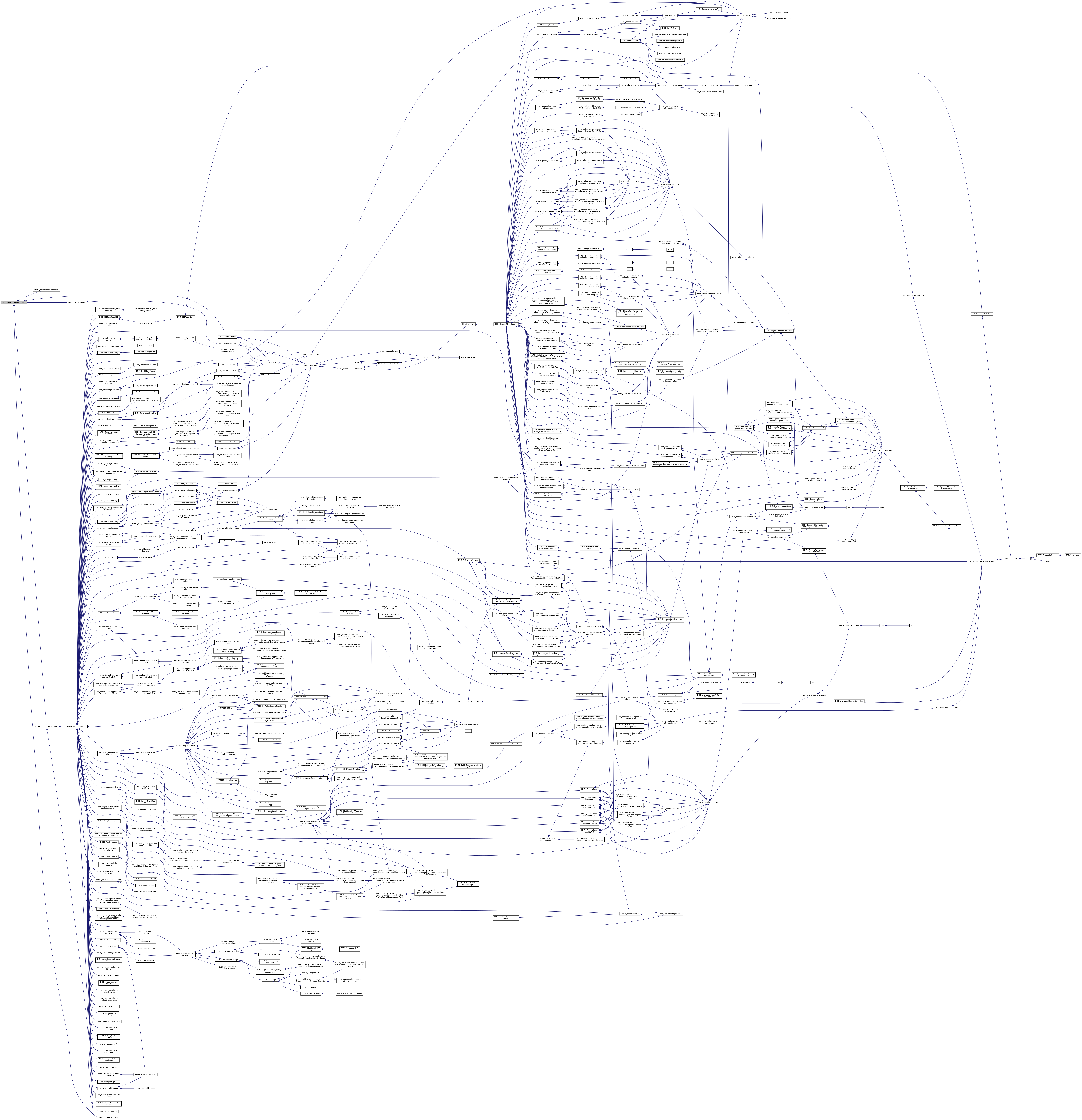
◆ getMaxUInt()
|
inlinestaticinherited |
get the max value for tUInt type
- Returns
- the max value for tUInt type
Referenced by EMM_Array< tCellFlag >::loadFromFile(), EMM_RealField::loadFromFile(), and CORE_Test::testType().

◆ getMaxUInteger()
|
inlinestaticinherited |
get the max value for the unsigned integer type
- Returns
- the max value for the unsigned integer type
Referenced by MATH_Pn::computeExtrenums(), EMM_MultiScaleGrid::computeLevelsNumber(), EMM_Input::restoreBackup(), MATH_P0::solve(), and CORE_Test::testType().

◆ getMaxULInt()
|
inlinestaticinherited |
get the max value for tULInt type
- Returns
- the max value for tULInt type
Referenced by CORE_Test::testType().
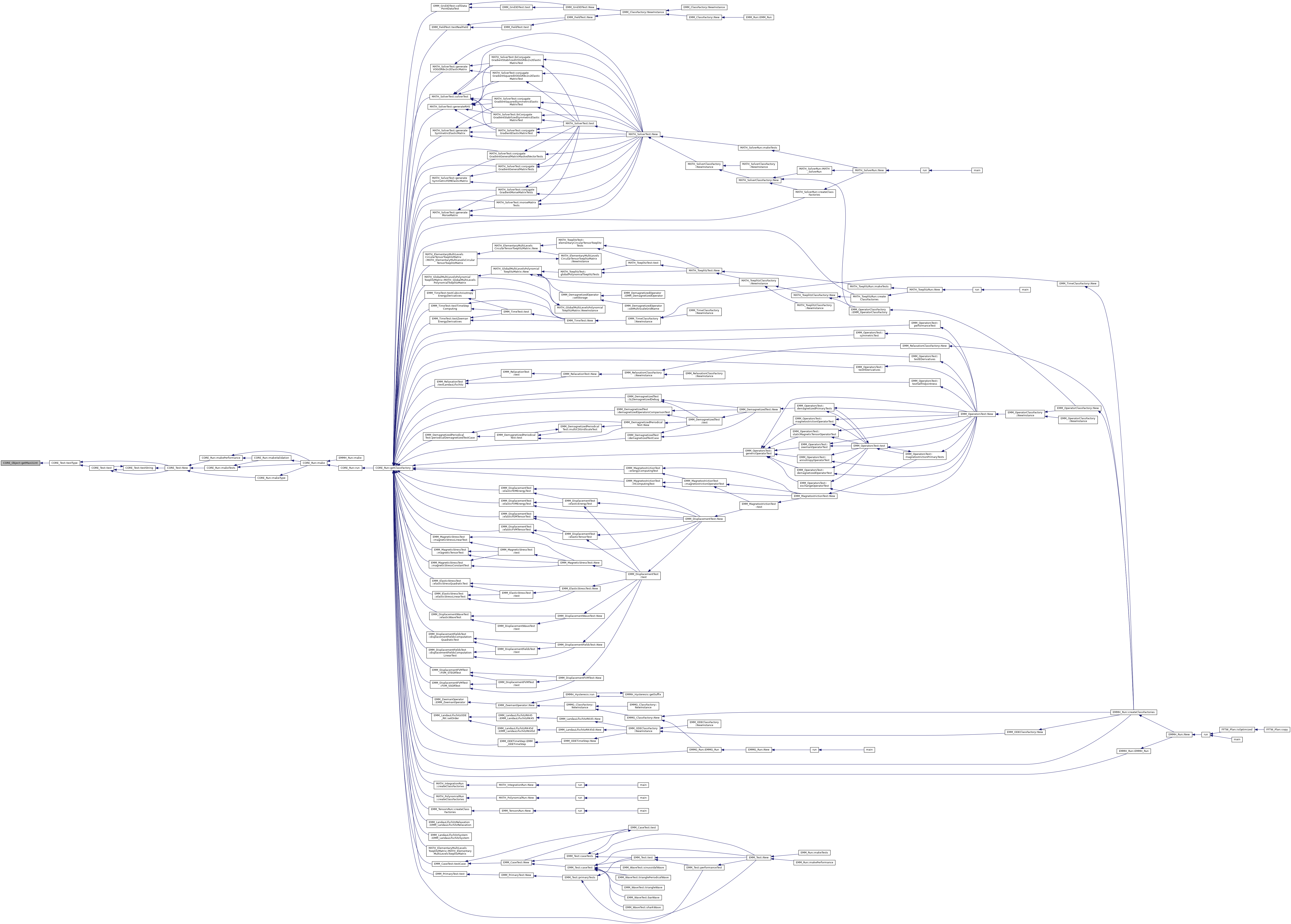
◆ getMaxULLInt()
|
inlinestaticinherited |
get the max value for tULLInt type
- Returns
- the max value for tULLInt type
Referenced by CORE_Test::testType().
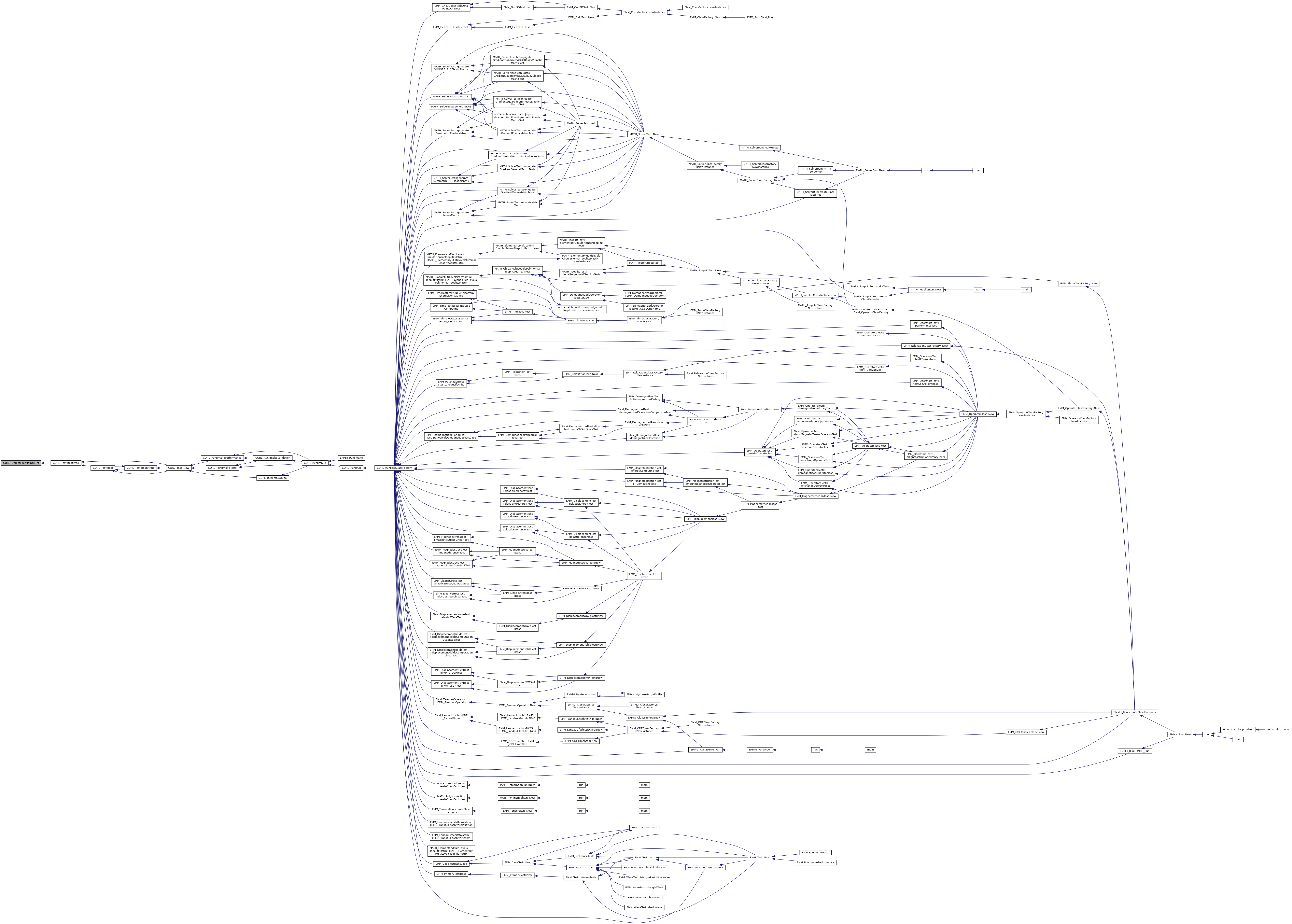
◆ getMaxUSInt()
|
inlinestaticinherited |
get the max value for tUSInt type
- Returns
- the max value for tUSInt type
Referenced by CORE_Test::testType().

◆ getMemorySize()
|
inlinevirtualinherited |
return the memory size in byte
- Returns
- the memory size of the storage in bytes 1 Kb = 1024 bytes 1 Mb = 1024 Kb 1 Gb = 1024 Mb 1 Tb = 1024 Gb 1 Hb = 1024 Tb
Referenced by EMM_MinimalExchangeOperator::getMemorySize(), MATH_MultiLevelsFFTToeplitzMatrix::getMemorySize(), MATH_FullMatrix::getMemorySize(), MATH_ArrayVector::getMemorySize(), MATH_MaskArrayVector::getMemorySize(), EMMG_RealField::getMemorySize(), CORE_MorseArray< tUChar >::getMemorySize(), and EMM_DisplacementOperator::getMemorySize().

◆ getMinChar()
|
inlinestaticinherited |
get the min value for tChar type
- Returns
- the min value for tChar type
Referenced by CORE_Test::testType().
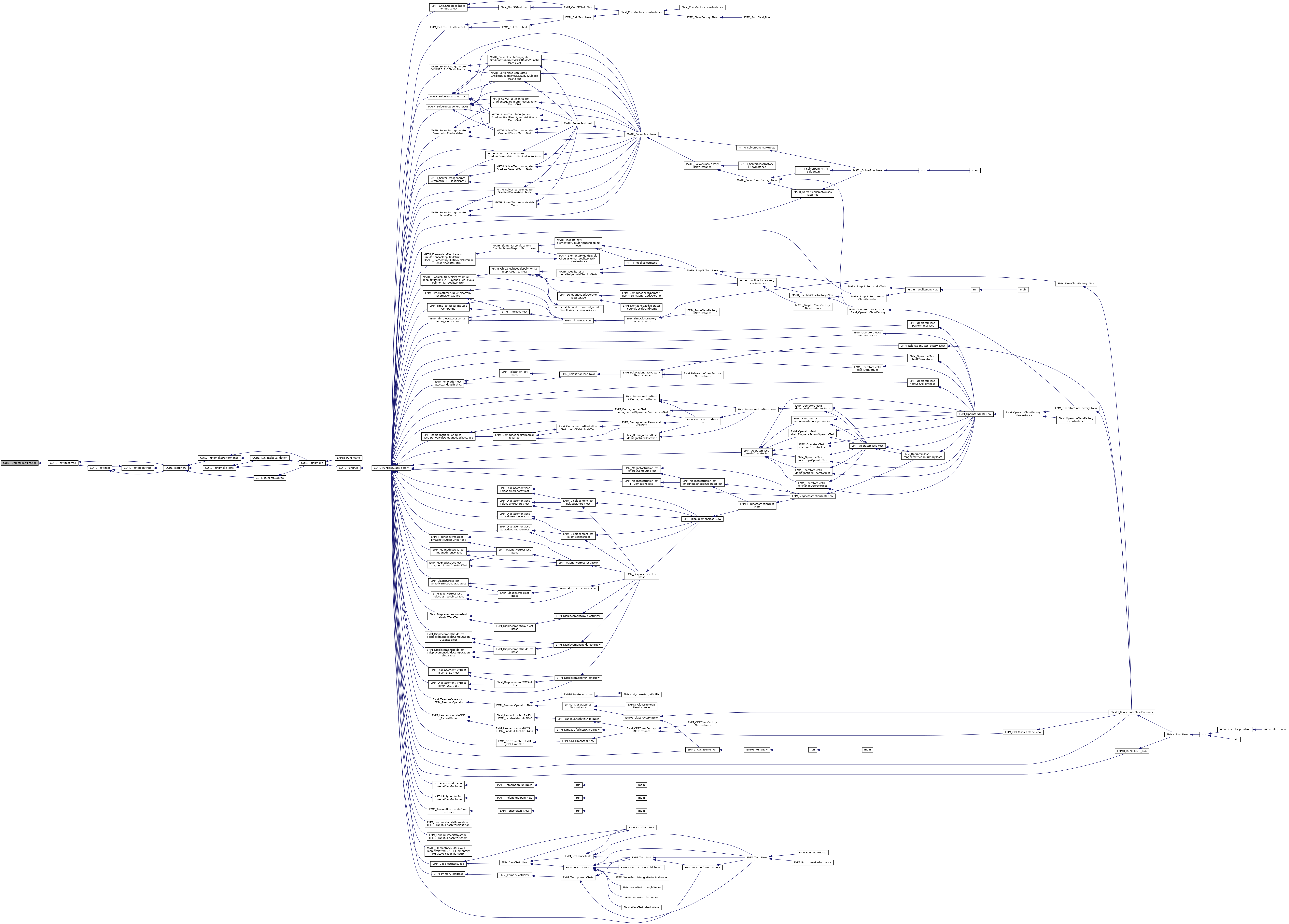
◆ getMinDouble()
|
inlinestaticinherited |
get the min value for tDouble type
- Returns
- the min value for tDouble type
Referenced by CORE_Test::testType().

◆ getMinFlag()
|
inlinestaticinherited |
get the min value for the tFlag type
- Returns
- the min value for the tFlag type
Referenced by CORE_Test::testType().
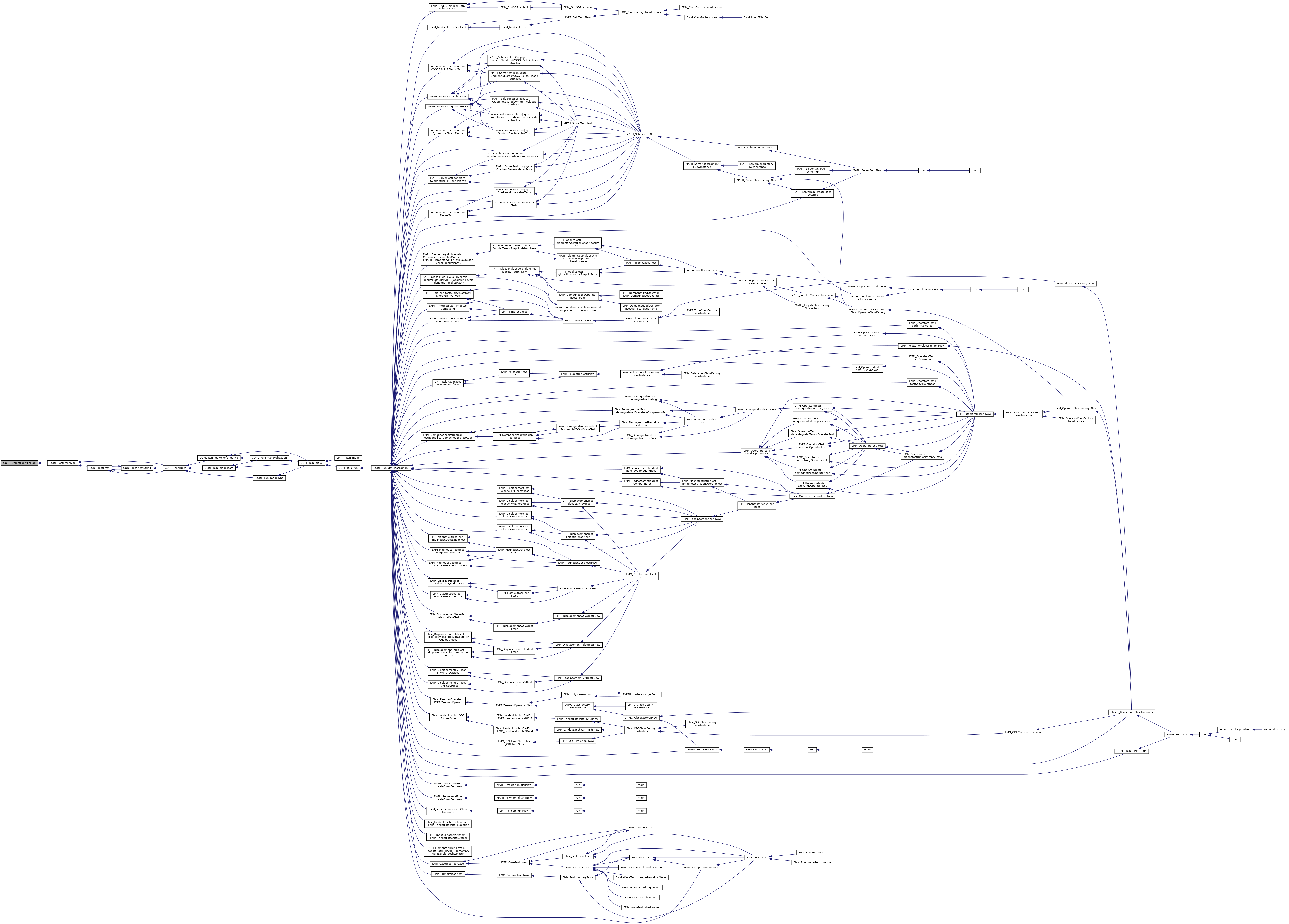
◆ getMinFloat()
|
inlinestaticinherited |
get the min value for tFloat type
- Returns
- the min value for tFloat type
Referenced by CORE_Test::testType().
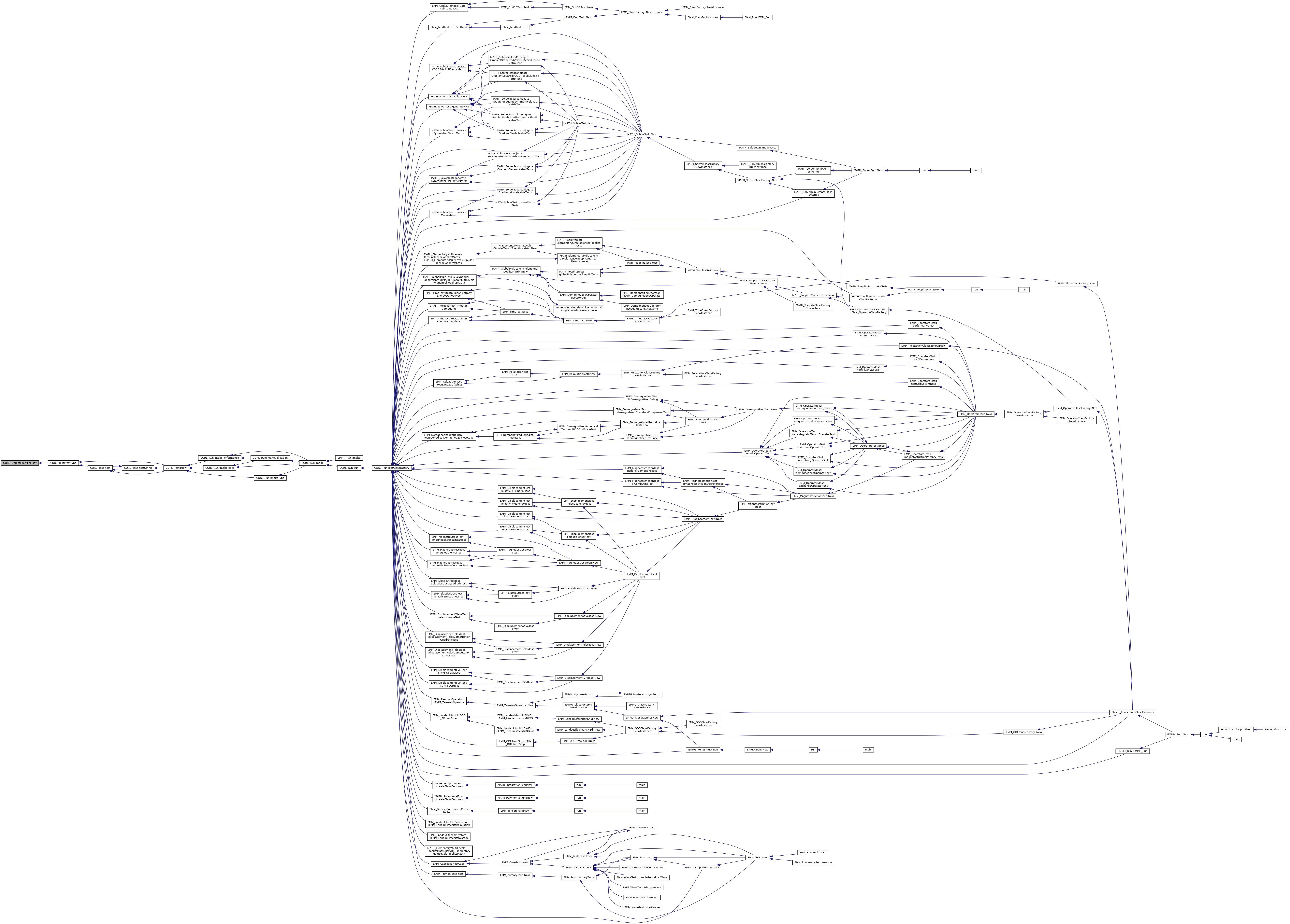
◆ getMinIndex()
|
inlinestaticinherited |
get the min value for the array/vector indexing type
- Returns
- the min value for the array/vector indexing type
Referenced by CORE_Test::testType().
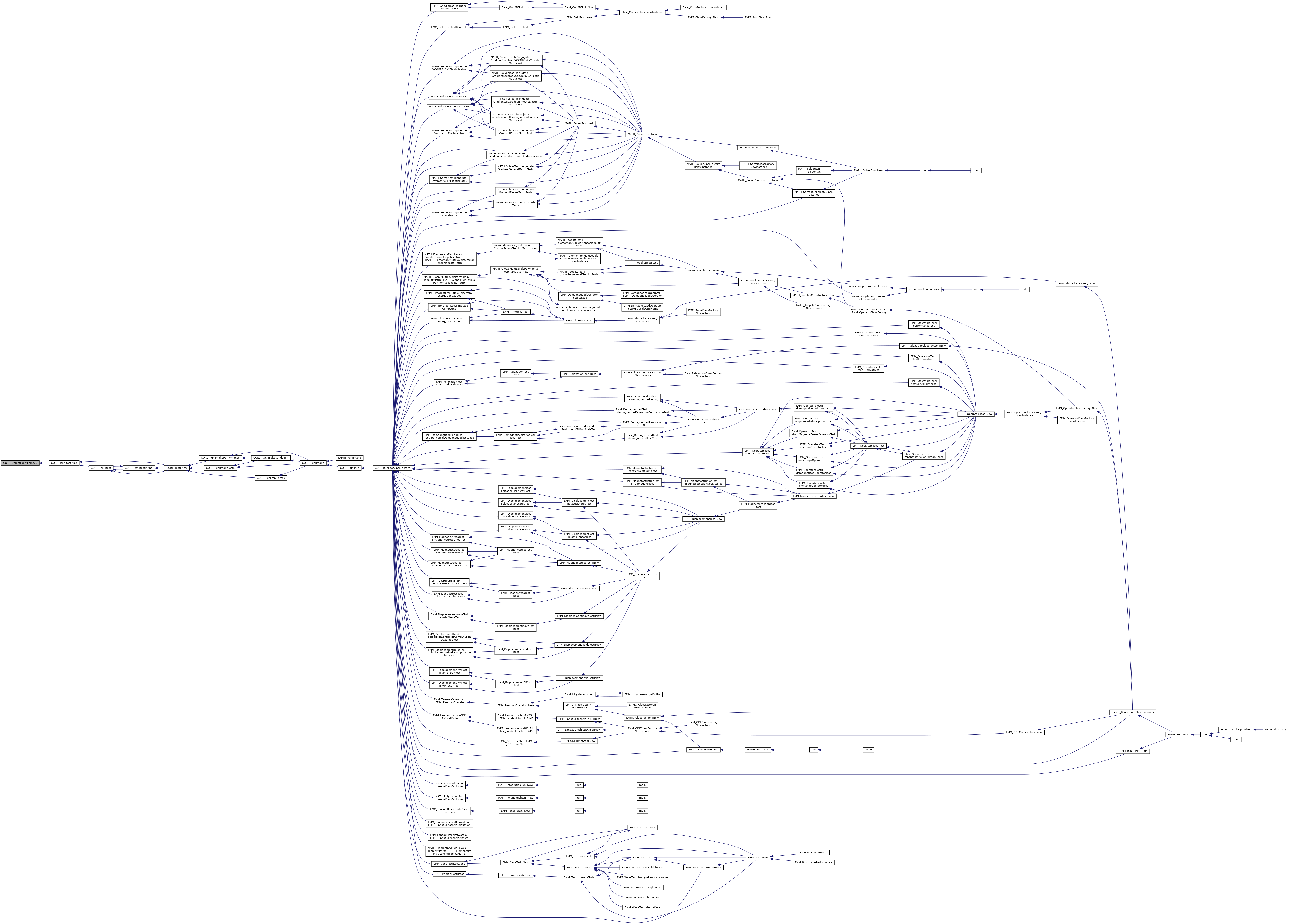
◆ getMinInt()
|
inlinestaticinherited |
get the min value for tInt type
- Returns
- the min value for tInt type
Referenced by CORE_Test::testType().
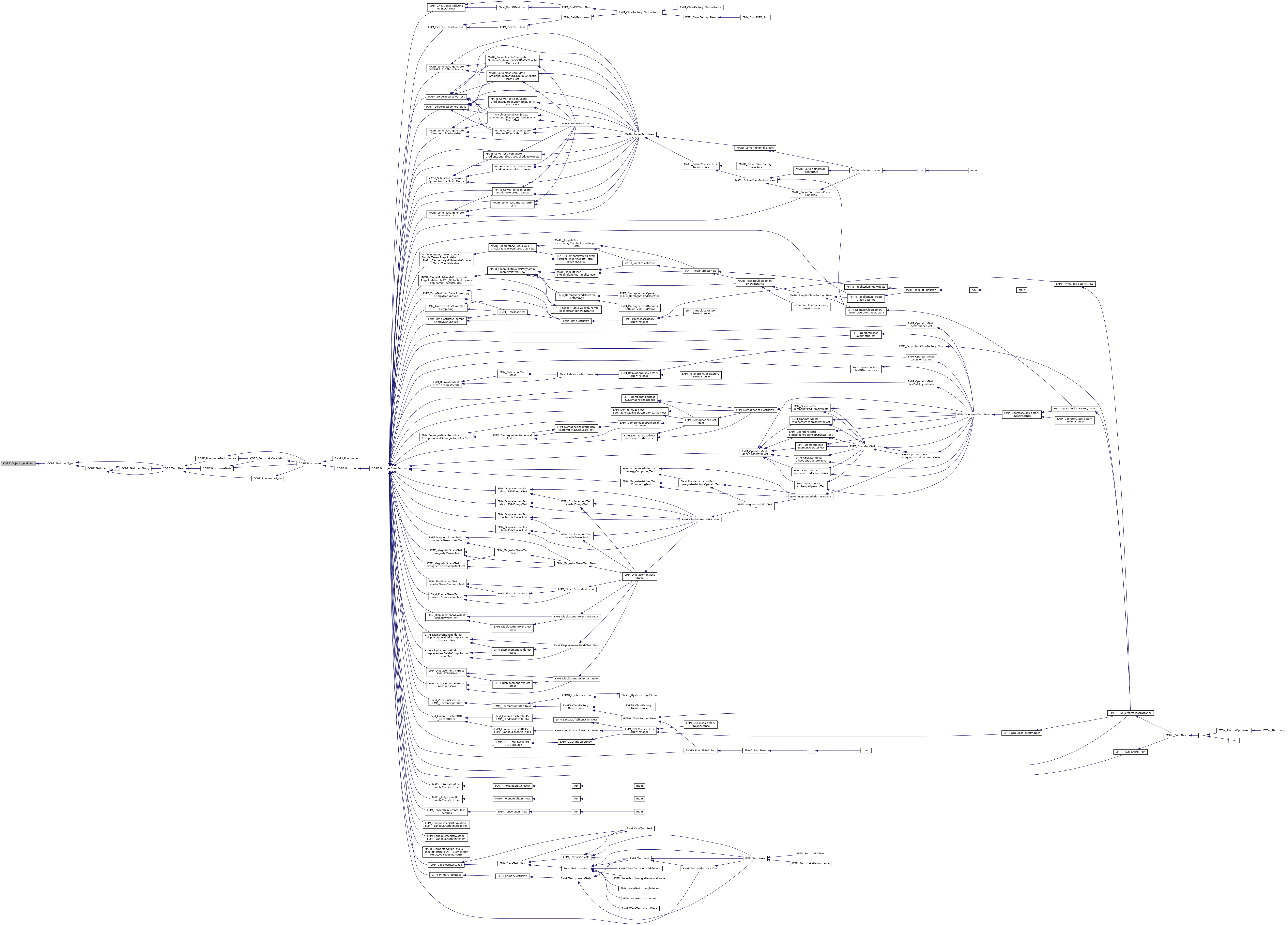
◆ getMinInteger()
|
inlinestaticinherited |
get the min value for the integer type
- Returns
- the minin value for the integer type
Referenced by CORE_Test::testType().

◆ getMinLDouble()
|
inlinestaticinherited |
get the min value for tLDouble type
- Returns
- the min value for tLDouble type
Referenced by CORE_Test::testType().

◆ getMinLInt()
|
inlinestaticinherited |
get the min value for tLInt type
- Returns
- the min value for tLInt type
Referenced by CORE_Test::testType().
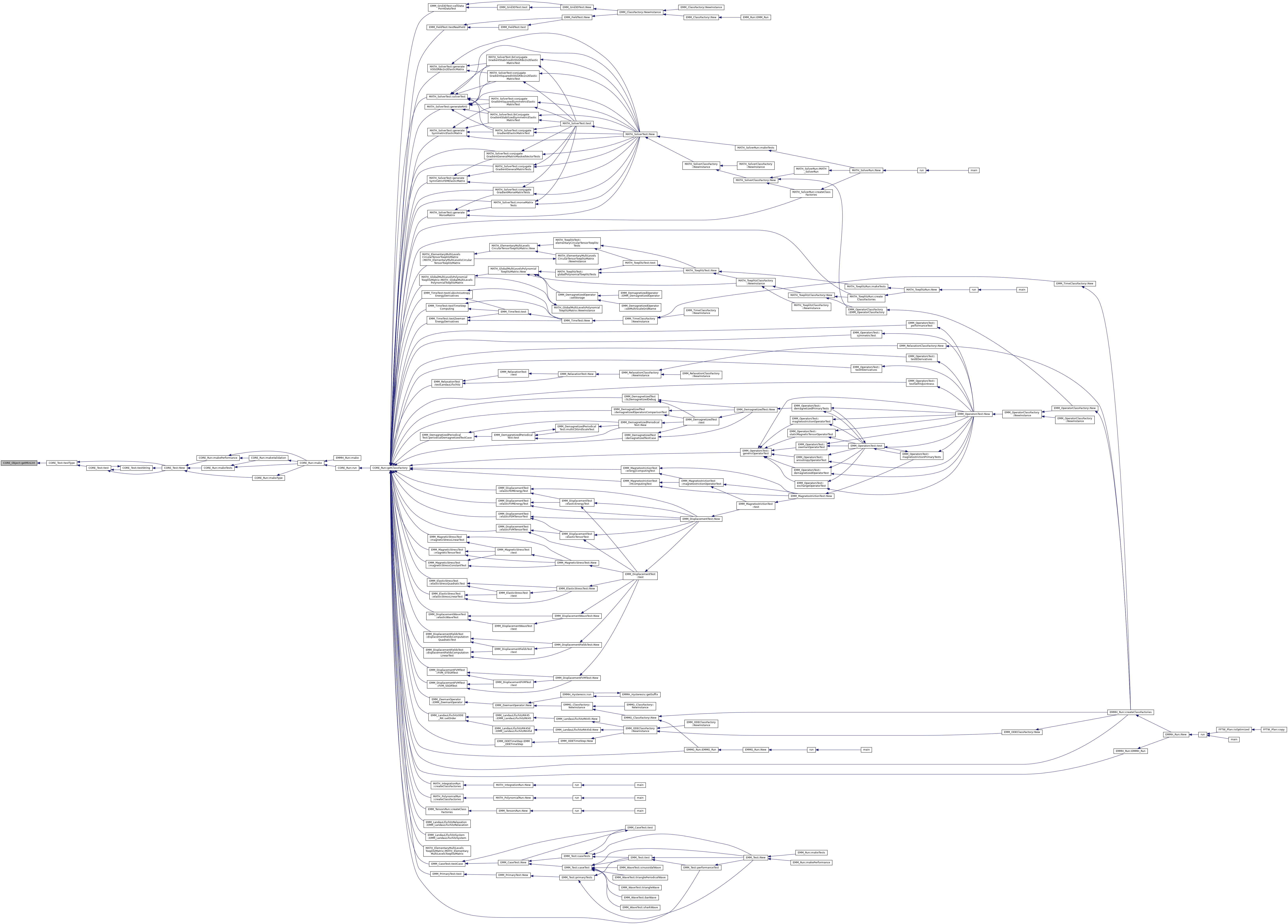
◆ getMinLLInt()
|
inlinestaticinherited |
get the min value for tLLInt type
- Returns
- the min value for tLLInt type
Referenced by CORE_Test::testType().

◆ getMinReal()
|
inlinestaticinherited |
get the min value for the real type
- Returns
- the min value for the real type
Referenced by CORE_Test::testType().
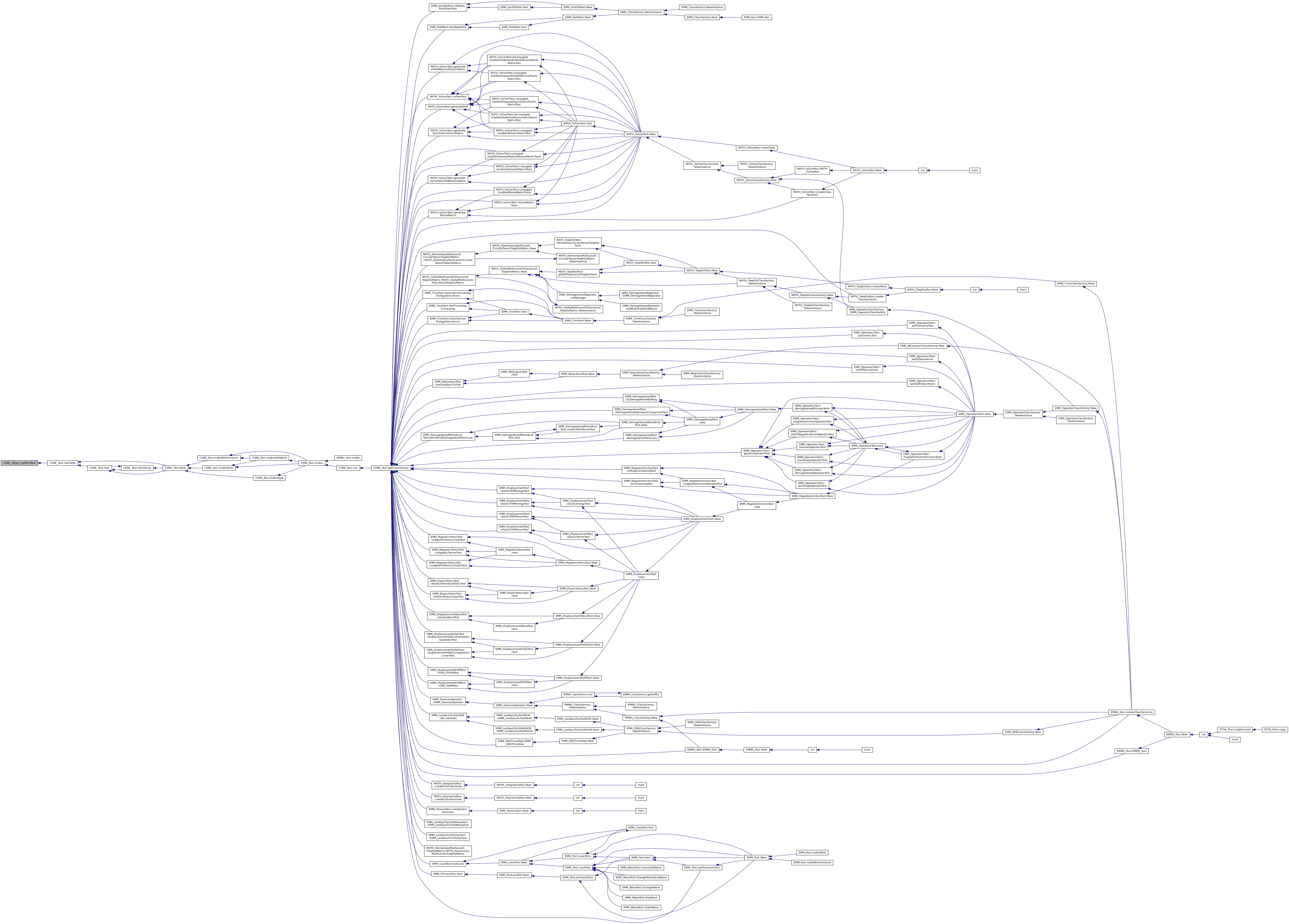
◆ getMinSInt()
|
inlinestaticinherited |
get the min value for tSInt type
- Returns
- the min value for tSInt type
Referenced by CORE_Test::testType().
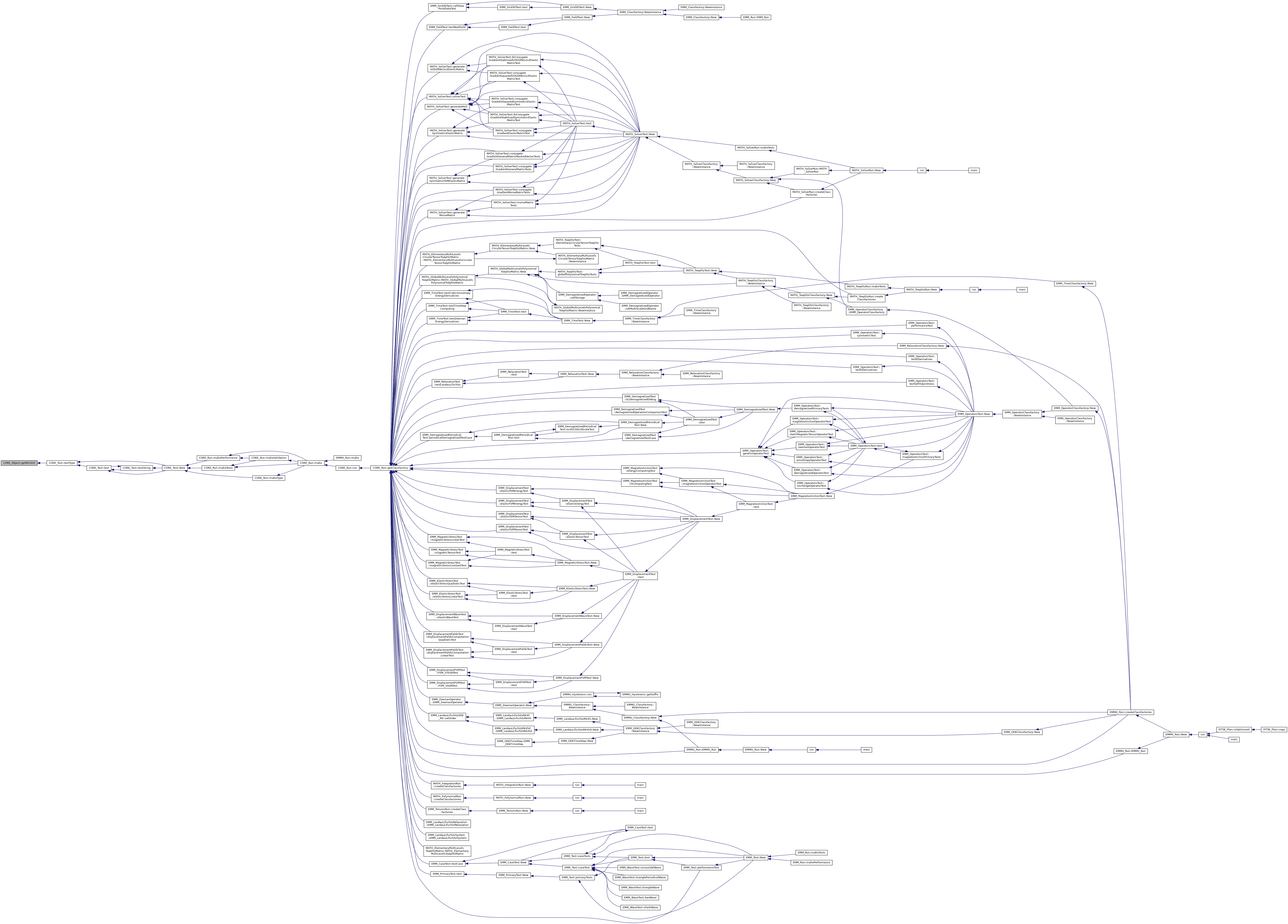
◆ getMinUChar()
|
inlinestaticinherited |
get the min value for tUChar type
- Returns
- the min value for tUChar type
Referenced by CORE_Test::testType().
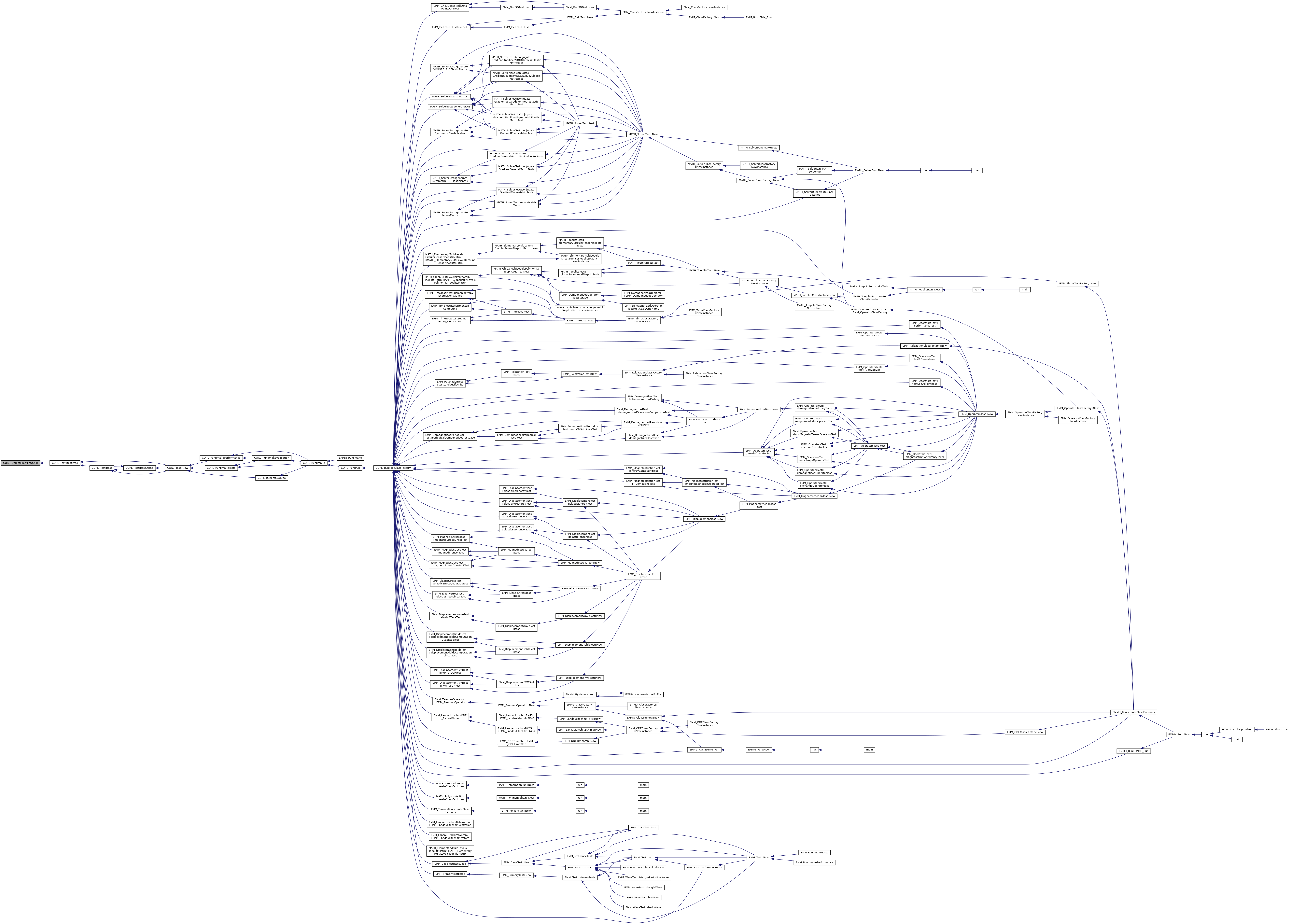
◆ getMinUIndex()
|
inlinestaticinherited |
get the min value for difference the array/vector indexing type
- Returns
- the min value for difference the array/vector indexing type
Referenced by CORE_Test::testType().
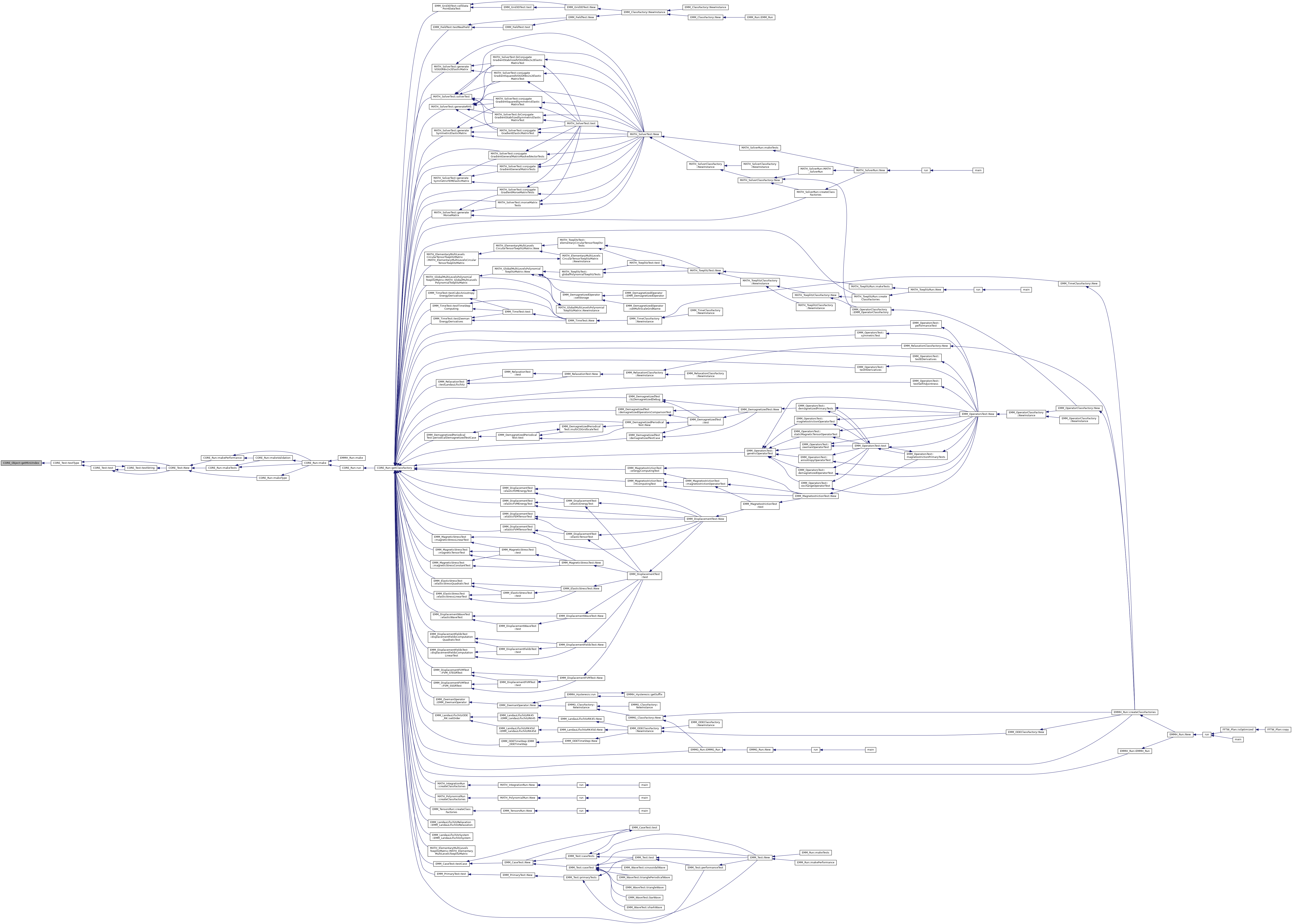
◆ getMinUInt()
|
inlinestaticinherited |
get the min value for tUInt type
- Returns
- the min value for tUInt type
Referenced by CORE_Test::testType().
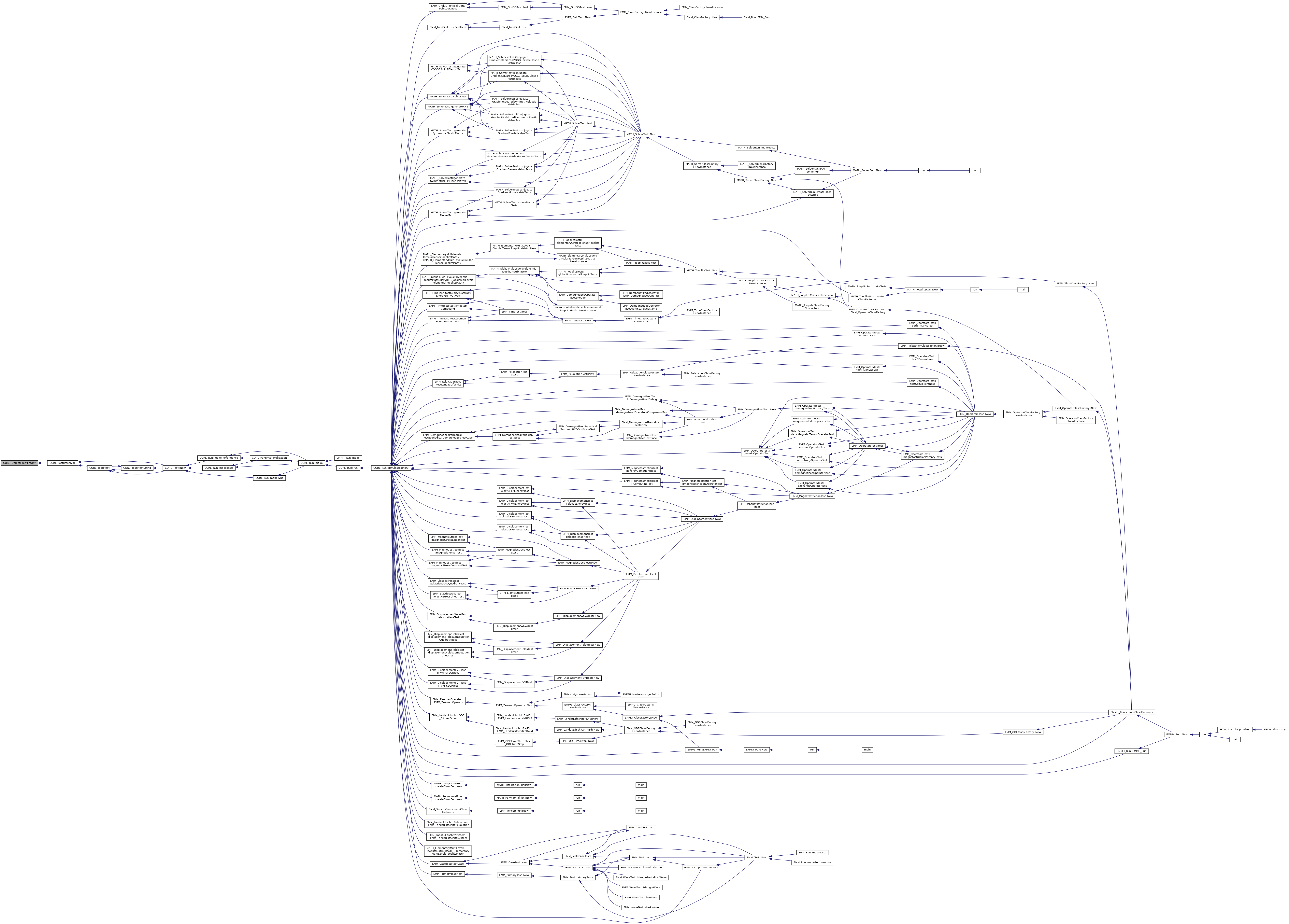
◆ getMinUInteger()
|
inlinestaticinherited |
get the min value for the unsigned integer type
- Returns
- the min value for the unsigned integer type
Referenced by CORE_Test::testType().

◆ getMinULInt()
|
inlinestaticinherited |
get the min value for tULInt type
- Returns
- the min value for tULInt type
Referenced by CORE_Test::testType().

◆ getMinULLInt()
|
inlinestaticinherited |
get the min value for tULLInt type
- Returns
- the min value for tULLInt type
Referenced by CORE_Test::testType().
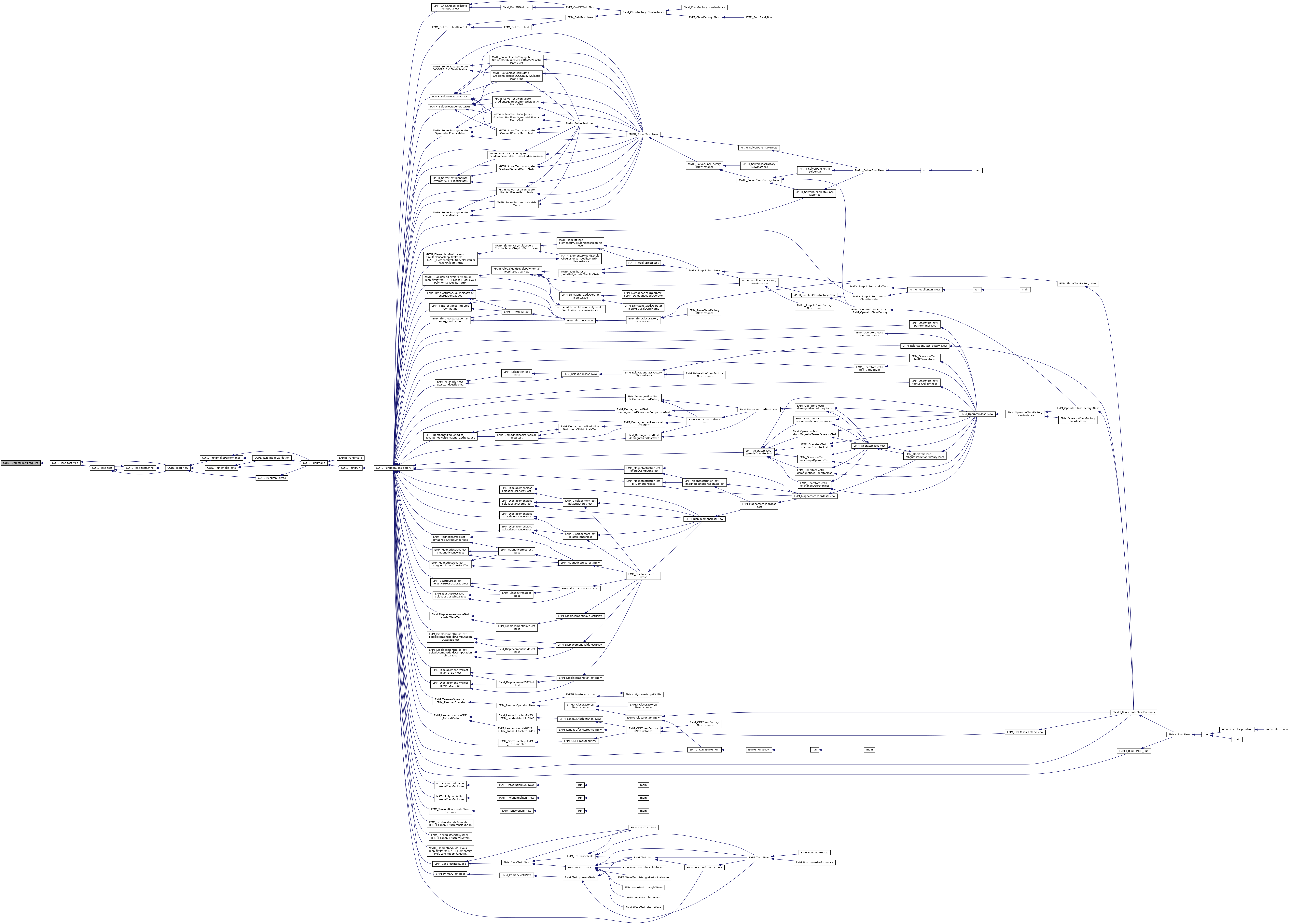
◆ getMinUSInt()
|
inlinestaticinherited |
get the min value for tUSInt type
- Returns
- the min value for tUSInt type
Referenced by CORE_Test::testType().
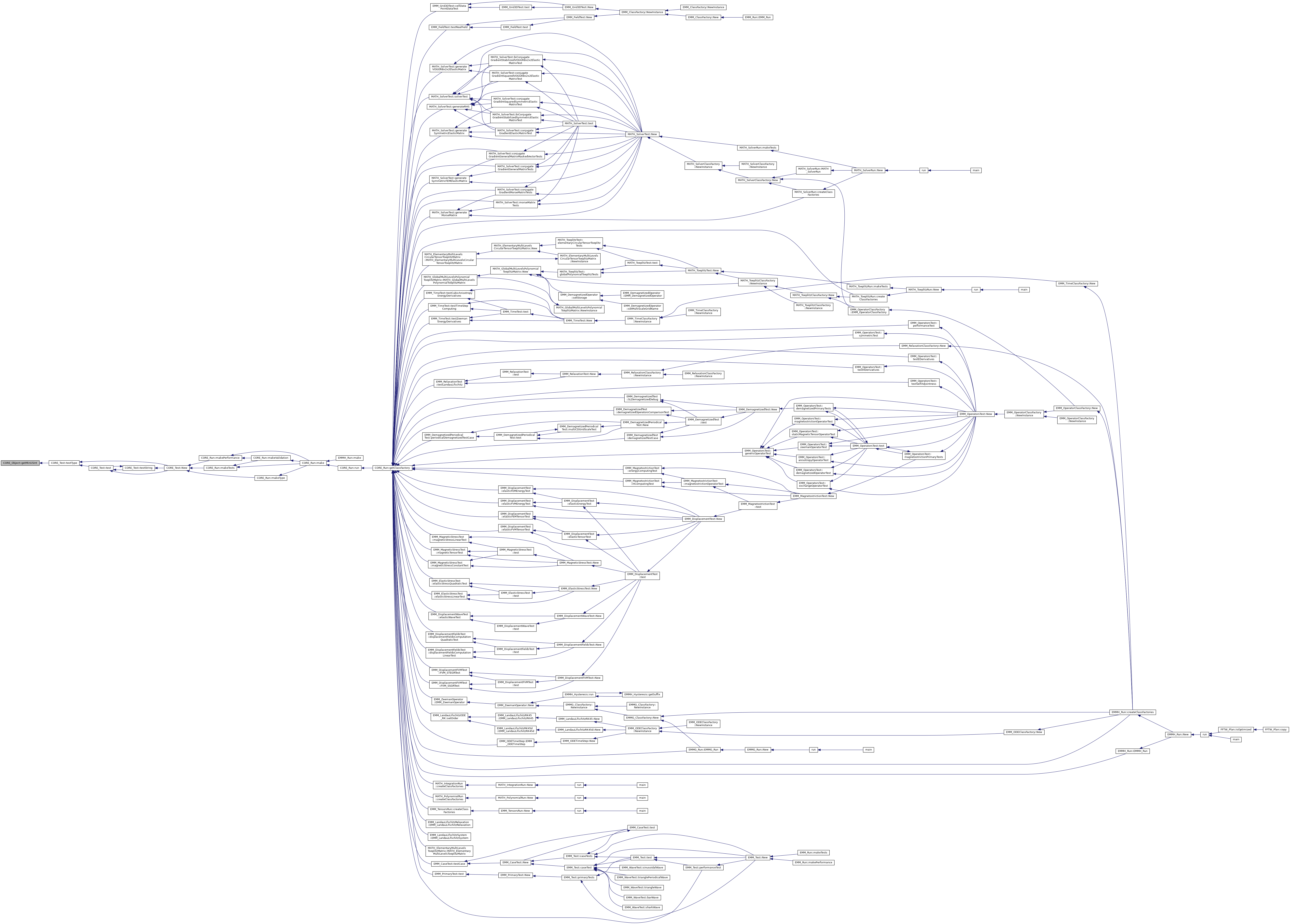
◆ getOrder()
|
inlineinherited |
get the oder
Referenced by CORE_ArrayList< tString >::copy(), and CORE_ArrayList< tString >::search().

◆ getOut()
|
inlinestaticinherited |
◆ getPointerAddress()
|
inlineinherited |
return the identity string of the object
- Returns
- the identity string of the object
References CORE_Object::pointer2String().

◆ getRealEpsilon()
|
inlinestaticinherited |
get the eps which is the difference between 1 and the least value greater than 1 that is representable.
- Returns
- the eps which is the difference between 1 and the least value greater than 1 that is representable.
Referenced by MATH_P4::solveP4De(), and CORE_Test::testType().
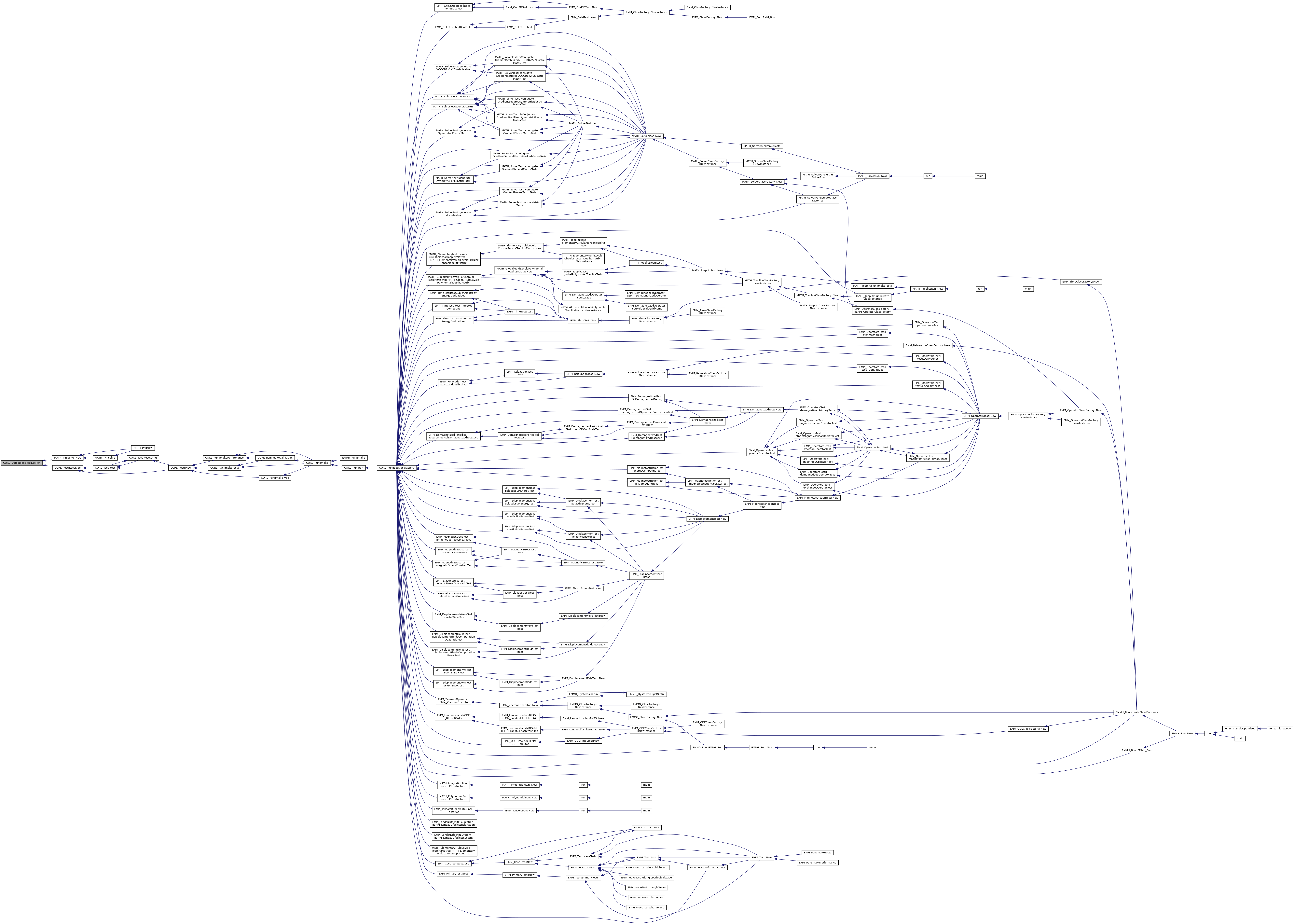
◆ getRealInfinity()
|
inlinestaticinherited |
get the infinity value
- Returns
- the inifinity value for the real type
Referenced by BrentFunction::BrentFunction(), EMM_OperatorsTest::compareDiscretizedData(), EMM_IterativeTimeStep::EMM_IterativeTimeStep(), EMM_SLElementaryDemagnetizedMatrix::Kxy(), NRFunction::NRFunction(), EMM_PolynomialInterpolationTimeStep::optimizeTimeFunction(), and CORE_Test::testType().
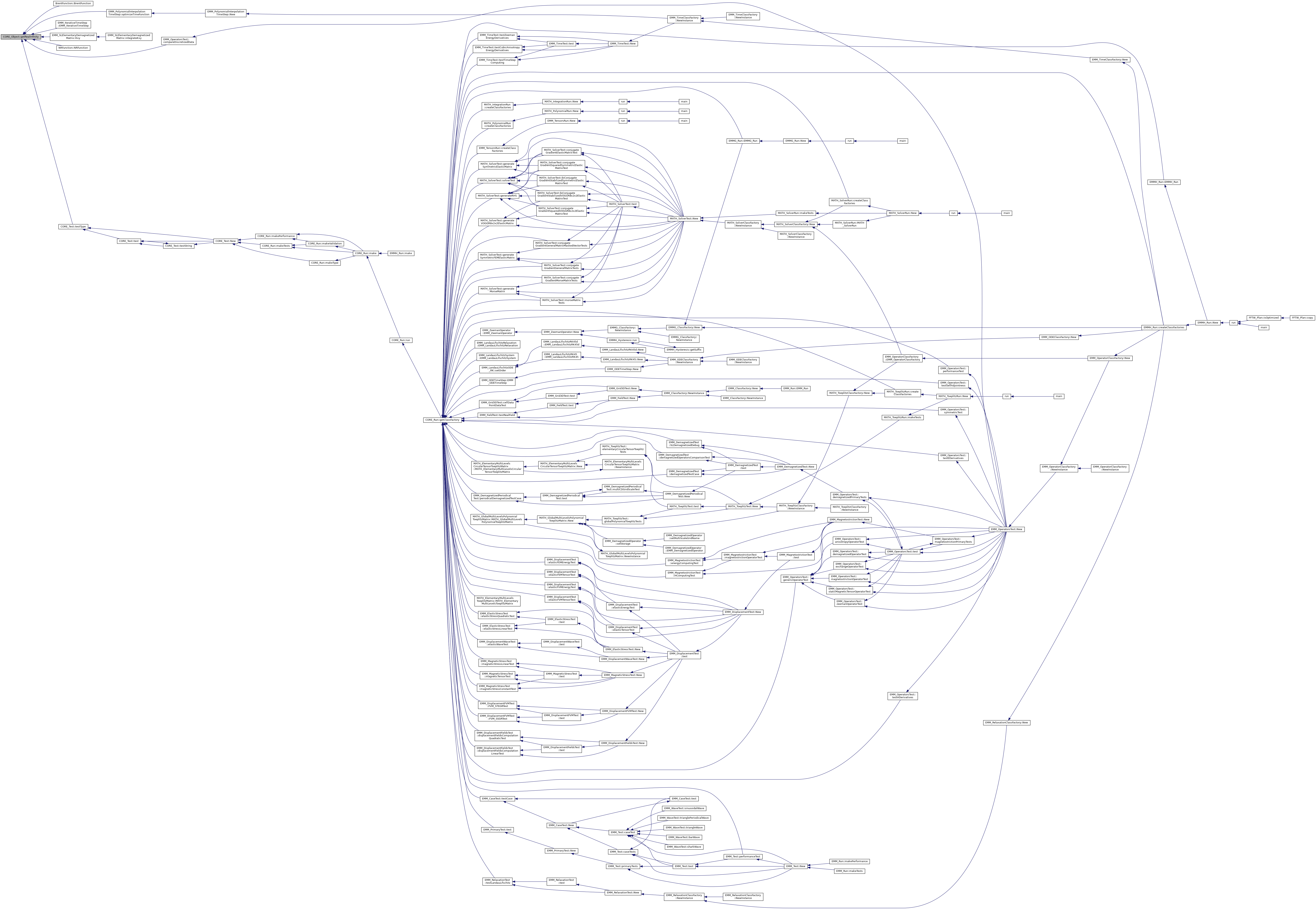
◆ getSharedPointer() [1/6]
|
inlineinherited |
return the shared pointer corresponding to the class with casting
- Parameters
-
p a return shared pointer to this
Referenced by CORE_ArrayList< tString >::getThis().

◆ getSharedPointer() [2/6]
|
inlineinherited |
return the shared pointer corresponding to the class whith casting
- Parameters
-
p a return shared pointer to this
◆ getSharedPointer() [3/6]
|
inlineinherited |
return the shared pointer corresponding to the class with casting
Referenced by CORE_Array< tCellFlag >::getThis().

◆ getSharedPointer() [4/6]
|
inlineinherited |
return the shared pointer corresponding to the class whith casting
◆ getSharedPointer() [5/6]
|
inlineinherited |
get the shared pointer of this class into p
- Parameters
-
p : shared pointer of the class This
Referenced by CORE_Map< Key, Value >::getSharedPointer(), CORE_ArrayList< tString >::getSharedPointer(), EMM_Array< tCellFlag >::getSharedPointer(), CORE_Array< tCellFlag >::getSharedPointer(), CORE_MorseArray< tUChar >::getSharedPointer(), CORE_Vector< T >::getSharedPointer(), and CORE_Object::printObjectsInMemory().
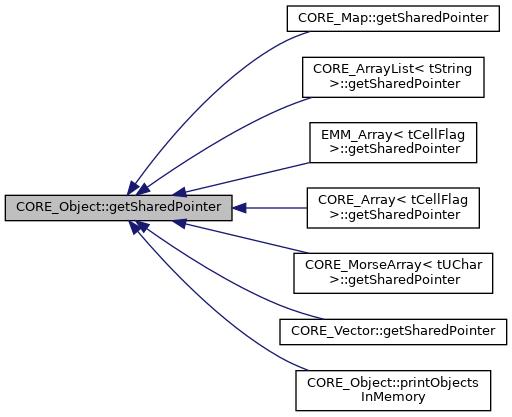
◆ getSharedPointer() [6/6]
|
inlineinherited |
get the shared pointer of this class into p
- Parameters
-
p : shared pointer of the class This
◆ getSize() [1/3]
|
inline |
return the size of the array in each direction
- Parameters
-
n size in direction z p size in direction y q size in direction z
Referenced by CORE_Array3D< T >::copy().

◆ getSize() [2/3]
|
inline |
return the sizes of the array in each direction
- Returns
- the size for all direction k in [0,3[
References CORE_Array3D< T >::mSize, CORE_Array3D< T >::toString(), and tString.

◆ getSize() [3/3]
|
inlineinherited |
return the size of the array for writing
- Returns
- the size of the array
◆ getThread()
|
inlinestaticinherited |
get the profilier
- Returns
- the profiler
Referenced by MATH_MaskVector::add(), MATH_Vector::add(), EMM_DisplacementFEMOperator::addBoundaryElasticStress(), EMM_DisplacementFEMOperator::buildDataOnNeumannBoundaryFaces(), EMM_DisplacementFVMOperator::computeCineticEnergy(), EMM_DisplacementFVMOperator::computeElasticStress(), EMM_DisplacementFEMOperator::computeElasticStress(), EMM_DisplacementFVMOperator::computeElasticTensor(), EMM_DisplacementFEMOperator::computeElasticTensor(), EMM_StaticMagneticTensorOperator::computeEnergy(), EMM_CubicAnisotropyOperator::computeEnergy(), EMM_MagnetostrictionOperator::computeEnergy(), EMM_DisplacementOperator::computeEnergy(), EMM_AnisotropyOperator::computeEnergyWithMagneticExcitation(), EMM_DisplacementFVMOperator::computeEquilibriumMatrixDiagonalConditioner(), EMM_DisplacementFEMOperator::computeEquilibriumMatrixDiagonalConditioner(), EMM_FullExchangeOperator::computeMagneticExcitationField(), EMM_StaticMagnetostrictionOperator::computeMagneticExcitationField(), EMM_LinearAnisotropyOperator::computeMagneticExcitationField(), EMM_StaticMagneticTensorOperator::computeMagneticExcitationField(), EMM_CubicAnisotropyOperator::computeMagneticExcitationField(), EMM_MinimalExchangeOperator::computeMagneticExcitationField(), EMM_AnisotropyOperator::computeMagneticExcitationField(), EMM_MagnetostrictionOperator::computeMagneticExcitationField(), EMM_CubicAnisotropyOperator::computeMagneticExcitationFieldGradient(), EMM_AnisotropyOperator::computeMagneticExcitationFieldGradient(), EMM_DisplacementFVMOperator::computeMagneticStress(), EMM_DisplacementFEMOperator::computeMagneticStress(), EMM_OptimalTimeStep::computeOptimalTimeStep(), EMM_DisplacementFEMOperator::computeStressConstraintEnergy(), EMM_FullExchangeOperator::discretize(), EMM_MinimalExchangeOperator::discretize(), EMM_CondensedMassMatrix::discretize(), EMM_LinearAnisotropyOperator::discretize(), EMM_AnisotropyOperator::discretize(), EMM_DemagnetizedOperator::discretize(), EMMG_SLDemagnetizedOperator::discretize(), EMM_LandauLifschitzSystem::discretize(), MATH_Vector::divide(), MATH_MaskVector::dot(), MATH_Vector::dot(), EMM_4SymmetricTensors::doubleDot(), EMM_4Tensors::doubleDotCrossDoubleDotScalar(), EMM_4Tensors::doubleDotCrossProduct(), EMM_4Tensors::doubleDotCrossSquaredScalar(), EMM_4Tensors::doubleDotProduct(), MATH_Vector::init(), MATH_MaskVector::init(), EMM_LandauLifschitzODE_RK::integrateMagnetizationFieldAtTime(), EMM_DisplacementFVM_Interpolator::interpolateUAtVertices(), EMMG_SLDemagnetizedOperator::localAssembly(), EMM_DisplacementOperator::nullProjectionOnDirichletBoundary(), EMM_DisplacementOperator::periodicProjection(), EMM_2PackedSymmetricTensors::product(), EMM_CanonicalMassMatrix::product(), MATH_FullMatrix::product(), EMM_CondensedMassMatrix::product(), EMM_BlockMassMatrix::product(), MATH_MorseMatrix::product(), EMMG_SLDemagnetizedOperator::product(), EMM_DisplacementOperator::projectionOnDirichletBoundary(), EMM_LandauLifschitzSystem::resetOperatorsToInitialState(), EMM_DisplacementFVMOperator::setBoundaryFaceTypes(), FFTW_MultiDFTs::setFFT(), FFTW_MultiLevelsDFT::setFFT(), FFTW_MultiLevelsDFT::setLevels(), FFTW_MultiDFTs::setPlan(), FFTW_MultiLevelsDFT::setPlan(), EMM_CondensedMassMatrix::solve(), EMM_LandauLifschitzODE::solveODE(), EMM_4SymmetricTensors::squaredDoubleDot(), EMM_4Tensors::squaredDoubleDotCrossScalar(), EMM_4Tensors::squaredDoubleDotScalar(), EMM_CanonicalMassMatrix::symmetricDot(), EMM_CondensedMassMatrix::symmetricDot(), EMM_BlockMassMatrix::symmetricDot(), FFTW_Test::test(), MATH_SolverTest::test(), EMM_ODETest::testODE(), and EMM_Grid3D::updateLimitConditionOnPoints().

◆ getTypeName()
|
inlinestaticinherited |
◆ getTypeToString()
|
inlineinherited |
get the type name of the array
- Returns
- the name of the type of the element
Referenced by EMMG_RealField::getTypeToString().

◆ getValue() [1/2]
|
inlineinherited |
get the values of the array for writing
- Parameters
-
i index of the value
- Returns
- the value at index
Referenced by EMM_Matter::getAdimensionizedElasticTensor(), EMM_Matter::getAdimensionizedMagneticTensor(), EMM_Matter::getElasticTensor(), EMM_Matter::getMagneticTensor(), and EMM_RelaxationTest::testNewM().

◆ getValue() [2/2]
|
inlineinherited |
get the values of the array for reading
- Parameters
-
i index of the value
- Returns
- the value at index
◆ getValues() [1/4]
|
inlineinherited |
get the values of the array for reading
- Returns
- the pointer to the values
Referenced by CORE_ArrayList< tString >::append(), CORE_ArrayList< tString >::exists(), and CORE_Array< tCellFlag >::transfertValuesByReference().
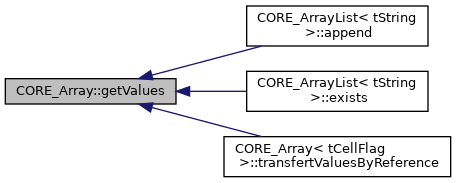
◆ getValues() [2/4]
|
inlineinherited |
get the values of the array for writing
- Returns
- the pointer to the values
◆ getValues() [3/4]
|
inlineinherited |
get the values of the array for reading
- Parameters
-
n OUTPUT the size of the values
- Returns
- the pointer to the values
◆ getValues() [4/4]
|
inlineinherited |
get the values of the array for writing
- Parameters
-
n OUTPUT the size of the values
- Returns
- the pointer to the values
◆ initArray() [1/8]
init the array to uniform value
- Parameters
-
f : uniform value
Referenced by CORE_Array< tCellFlag >::add(), EMM_WaveTest::barWave(), CORE_Array< tCellFlag >::initArray(), EMM_MatterField::initIndices(), EMMG_RealField::multiplyBy(), CORE_StringArrayList::operator=(), CORE_ArrayList< tString >::operator=(), CORE_Array< tCellFlag >::operator=(), CORE_MorseArray< tUChar >::reset(), CORE_Array< tCellFlag >::set(), EMM_Matter::setElasticTensor(), EMM_Matter::setMagneticTensor(), EMM_WaveTest::sharkWave(), EMM_WaveTest::sinusoidalWave(), EMM_MorseArrayTest::test(), EMM_RelaxationTest::testNewM(), EMM_WaveTest::trianglePeriodicalWave(), and EMM_WaveTest::triangleWave().

◆ initArray() [2/8]
|
inherited |
init array to vector B with p-dimension
- Parameters
-
p dimension of vector B B : value of the vector
◆ initArray() [3/8]
|
inlineinherited |
init array to vector B
◆ initArray() [4/8]
|
inherited |
◆ initArray() [5/8]
|
inherited |
init array to vector B with p-dimension
- Parameters
-
from : initial index to : excluded final index p dimension of the vector B inc increment of the vector B B : value of the vector B
◆ initArray() [6/8]
|
inlineinherited |
init array to vector B with p-dimension
- Parameters
-
from : initial index to : excluded final index p dimension of the vector B B : value of the vector B
◆ initArray() [7/8]
|
inherited |
init array to values
- Parameters
-
from : initial index values string reprensentation of the values: of the form [x,y,z,...] or (x,y,z,..)
◆ initArray() [8/8]
|
inlineinherited |
init array to values
- Parameters
-
values string reprensentation of the values: of the form [x,y,z,...] or (x,y,z,..)
◆ insert()
|
inherited |
insert the element in the array with respect to the order of the list
- Parameters
-
v value to insert
Referenced by CORE_ArrayList< tString >::clear().

◆ insertAtIndex()
|
inherited |
insert the object at index i
- Parameters
-
i index of insertion v value to insert re-allocate the array if capacity too small At the end (*this)[i]=v;
Referenced by CORE_Array2D< T >::add(), and CORE_ArrayList< tString >::clear().

◆ is32Architecture()
|
inlinestaticinherited |
return true if the machine is a 32 bits machine
- Returns
- true is the computing is done in a 32 bits machine
References CORE_Object::pointer2String(), CORE_Object::printObjectsInMemory(), and tString.
Referenced by CORE_Test::testType().


◆ is64Architecture()
|
inlinestaticinherited |
return true if the machine is a 64 bits machine
- Returns
- true is the computing is done in a 64 bits machine
Referenced by EMM_VTK::getVTKType(), and CORE_Test::testType().
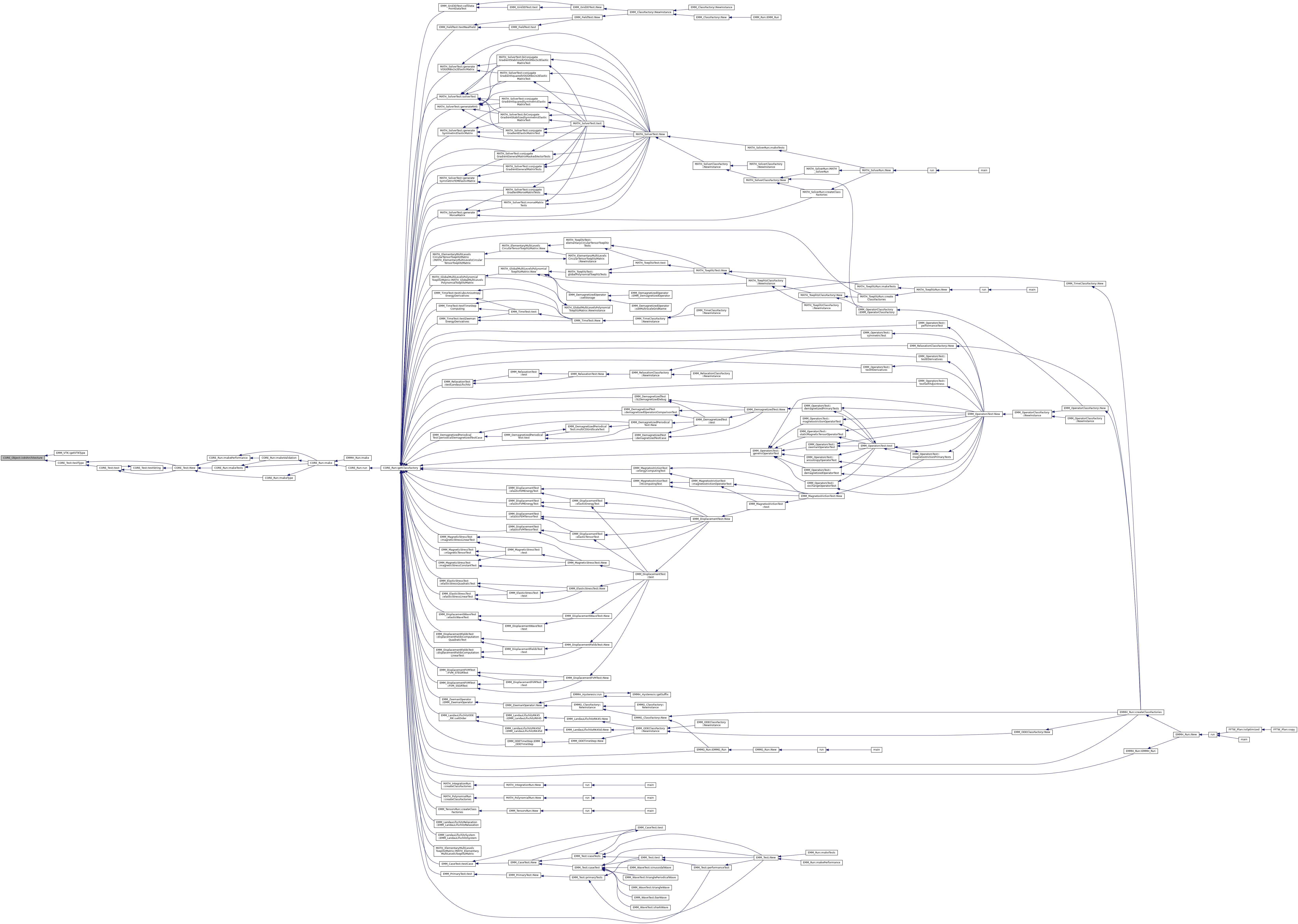
◆ isInstanceOf() [1/2]
|
inlineinherited |
test if the clas T is an instance of this class
- Returns
- true if the object is an instance of T
References null.
Referenced by MATH_ToeplitzTest::toeplitzTest().

◆ isInstanceOf() [2/2]
test if the object is an instance of className
- Parameters
-
name name of the class
- Returns
- true if the object is an instance of class Name
References CORE_Object::getIdentityString().

◆ isMemoryChecked()
|
inlinestaticinherited |
get if the memory checking is used
- Returns
- true: if the memory checking is used.
References CORE_Object::getClassName(), CORE_Object::mIsMemoryTesting, and tString.
Referenced by main().


◆ max()
|
inlineinherited |
get the absolute mximum value of this
- Returns
- maw_i fabs((*this)[i])
Referenced by CORE_Array< tCellFlag >::distanceMax().

◆ multiply()
|
inlineinherited |
This[i]*=Y[i].
- Parameters
-
Y array value
◆ New() [1/2]
|
inlinestatic |
New constructor. return a shared pointer of CORE_Array3D.
References CORE_Array3D< T >::copy(), CORE_Array3D< T >::setSize(), and tUIndex.

◆ New() [2/2]
|
inlinestaticinherited |
return a CORE_Array shared pointer
- Returns
- a New shared pointer of this
◆ norm()
|
inlineinherited |
get the norm
- Returns
- sqrt(sim_i (this)[i](*this)[i] ]
◆ norm2()
|
inlineinherited |
get the squared norm
- Returns
- sum_i (*this)[i]^2
Referenced by CORE_Array< tCellFlag >::distance2(), and CORE_Array< tCellFlag >::norm().

◆ operator()() [1/2]
|
inline |
get the index-th element (i,j,k)=[i+Nx*(j+Ny*k)]
References CORE_Array< T >::operator[]().

◆ operator()() [2/2]
|
inline |
get the index-th element (i,j,k)=[i+Nx*(j+Ny*k)]
References CORE_Array< T >::operator[]().

◆ operator*=()
|
inlineinherited |
This*=f.
- Parameters
-
f the multiplicator value
- Returns
- this
Referenced by EMM_Array< tCellFlag >::operator*=().

◆ operator+=()
|
inlineinherited |
This+=f.
- Parameters
-
f the add value
- Returns
- this
Referenced by EMM_Array< tCellFlag >::operator+=().

◆ operator-=()
|
inlineinherited |
This-=f.
- Parameters
-
f the sub value
- Returns
- this
Referenced by EMM_Array< tCellFlag >::operator-=().

◆ operator/=()
|
inlineinherited |
This/=f.
- Parameters
-
f the division value
- Returns
- this
Referenced by EMM_Array< tCellFlag >::operator/=().

◆ operator[]() [1/2]
|
inline |
get the index-th element (i,j,k)=
References CORE_Array< T >::operator[]().

◆ operator[]() [2/2]
|
inline |
get the k-the element (i,j,k)=[i+Nx*(j+Ny*k)] index : index of element
References CORE_Array< T >::operator[]().

◆ out()
|
inlinestaticinherited |
get the output
- Returns
- the output stream
Referenced by EMM_Matter::adimensionize(), EMM_DisplacementFVMOperator::backup(), EMM_DisplacementOperator::backup(), MATH_ElementaryMultiLevelsToeplitzMatrix::buildSpectralVectorProjector(), EMM_Test::caseTest(), EMM_Test::caseTests(), EMM_MatterField::computeAnisotropyDirectionsField(), EMM_OptimalTimeStep::computeOptimalTimeStep(), MATH_MultiLevelsToeplitzMatrix::copy(), CORE_Exception::CORE_Exception(), EMM_MatterField::createAnisotropyOperator(), CORE_Run::createIO(), EMM_ElementaryTest::defaultBackupTest(), EMM_ElementaryTest::defaultTest(), MATH_MultiLevelsFFTToeplitzMatrix::diagonalize(), EMM_DisplacementFVMOperator::discretize(), EMM_MagnetostrictionOperator::discretize(), EMM_DisplacementFEMOperator::discretize(), EMM_4SymmetricTensors::doubleDot(), EMM_4Tensors::doubleDotCrossDoubleDotScalar(), EMM_TensorsTest::doubleDotCrossDoubleDotScalarTests(), EMM_4Tensors::doubleDotCrossProduct(), EMM_TensorsTest::doubleDotCrossProductTests(), EMM_4Tensors::doubleDotCrossSquaredScalar(), EMM_TensorsTest::doubleDotCrossSquaredScalarTests(), EMM_4Tensors::doubleDotProduct(), EMM_TensorsTest::doubleDotProductTests(), EMM_DisplacementWaveTest::elasticWaveTest(), EMM_Test::elementaryTests(), FFTW_Test::fftwTutorial(), MATH_IntegrationTest::gaussLegendreTest(), EMM_MagnetostrictionTest::HComputingTest(), EMM_DemagnetizedPeriodicalTest::HTest(), EMMH_HysteresisTest::hysteresisDefaultCycleTest(), EMM_TensorsTest::initializationTests(), EMM_MultiScaleGrid::initialize(), EMM_MultiScaleSDGrid::initialize(), EMM_MatterField::loadFromANIFile(), EMM_AnisotropyDirectionsField::loadFromFile(), EMM_Matter::loadFromFile(), EMM_Grid3D::loadFromGEOFile(), EMM_MatterField::loadFromLOCFile(), EMM_Array< tCellFlag >::loadFromStream(), EMM_Matter::loadFromStream(), EMM_Matter::loadMattersFromFile(), EMM_Run::loadSystemFromOptions(), EMM_ElementaryTest::magnetostrictionBackupTest(), CORE_Run::make(), EMMH_Run::makeHysteresis(), EMM_Run::makeRun(), CORE_Run::makeType(), EMM_ElementaryTest::optionsTest(), MATH_PolynomialTest::P4Tests(), EMM_Test::primaryTests(), EMM_LandauLifschitzSystem::printLog(), CORE_Run::printOptions(), EMM_2PackedSymmetricTensors::product(), EMMG_SLDemagnetizedOperator::projectionOnSpectralSpace(), CORE_Run::readOptionsFromCommandLine(), CORE_Test::readVectorTest(), EMM_DemagnetizedPeriodicalTest::relaxationTest(), EMM_DisplacementFVMOperator::restore(), EMM_DisplacementOperator::restore(), EMM_Input::restoreBackup(), EMMH_Hysteresis::run(), EMM_Output::save(), EMM_AnisotropyDirectionsField::saveToFile(), EMM_MatterField::saveToFile(), EMM_Grid3D::saveToGEOFile(), CORE_IOTest::searchTest(), EMMH_Hysteresis::setInitialMagnetizationField(), MATH_MultiLevelsToeplitzMatrix::setLevels(), EMM_4SymmetricTensors::squaredDoubleDot(), EMM_4Tensors::squaredDoubleDotCrossScalar(), EMM_TensorsTest::squaredDoubleDotCrossScalarTests(), EMM_4Tensors::squaredDoubleDotScalar(), EMM_TensorsTest::squaredDoubleDotScalarTests(), EMM_TensorsTest::squaredDoubleDotTests(), EMM_MatterTest::testAdimensionize(), EMM_MatterTest::testANIFile(), CORE_Test::testComplex(), CORE_Test::testDateWeek(), FFTW_Test::testDFT(), EMM_MatterTest::testIO(), EMM_ODETest::testODE(), CORE_Test::testOut(), CORE_Test::testReal(), EMM_FieldTest::testRealArray(), EMM_Grid3DTest::testSegment(), EMM_Grid3DTest::testThinSheet(), CORE_Test::testTime(), CORE_Test::testType(), MATH_FullMatrix::toString(), EMM_DemagnetizedPeriodicalTest::xyPeriodicalCubeSDGTest(), and EMM_DemagnetizedPeriodicalTest::xyPeriodicalSheetSDGTest().

◆ pointer2String()
|
staticinherited |
return the string representation of a pointer
- Parameters
-
obj : oject to get the string pointer
- Returns
- the string pointer of the object
References tString.
Referenced by CORE_Object::CORE_Object(), CORE_Object::getIdentityString(), CORE_Object::getPointerAddress(), CORE_Object::is32Architecture(), and CORE_Object::~CORE_Object().

◆ printObjectsInMemory() [1/2]
|
staticinherited |
print object in memory
- Parameters
-
f : output to print the objects in memory
References CORE_Object::getIdentityString(), CORE_Object::getSharedPointer(), CORE_Object::mIsMemoryTesting, CORE_Object::mObjects, and tInteger.

◆ printObjectsInMemory() [2/2]
|
inlinestaticinherited |
print object in memory in the standart output
Referenced by CORE_Object::is32Architecture(), and main().
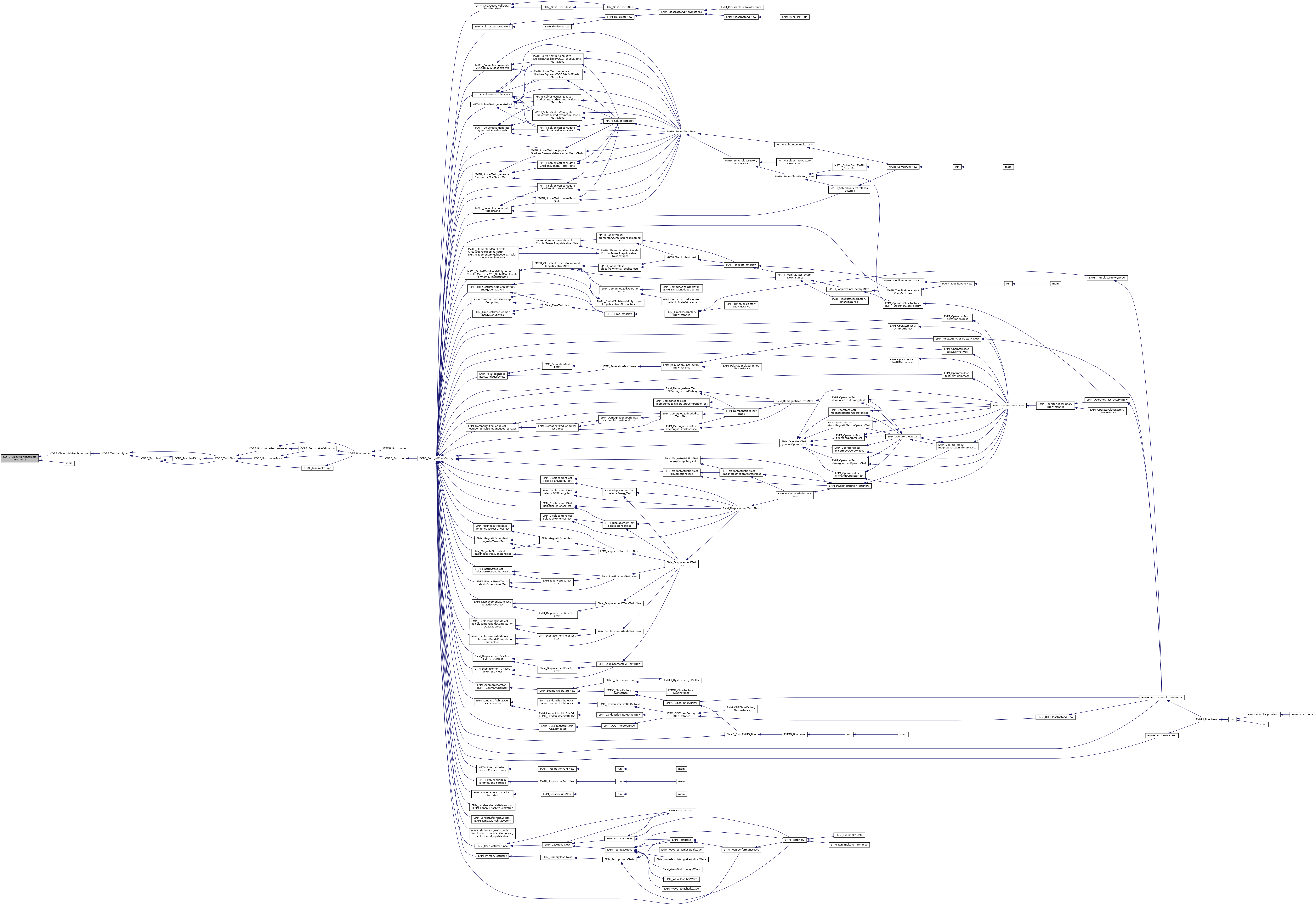
◆ push_back()
◆ remove()
|
inherited |
remove all the element with the value
- Returns
- true if at least one element has been removed
◆ removeAtIndex()
|
inherited |
remove the element at index
- Parameters
-
i index of the element to remeve
Referenced by CORE_ArrayList< tString >::clear().

◆ reserve()
|
inlineinherited |
reserve the capacity
- Parameters
-
cap the new capacity
Referenced by CORE_ArrayList< tString >::append(), CORE_ArrayList< tString >::insertAtIndex(), CORE_ArrayList< tString >::push_back(), and CORE_Array2D< T >::reserve().
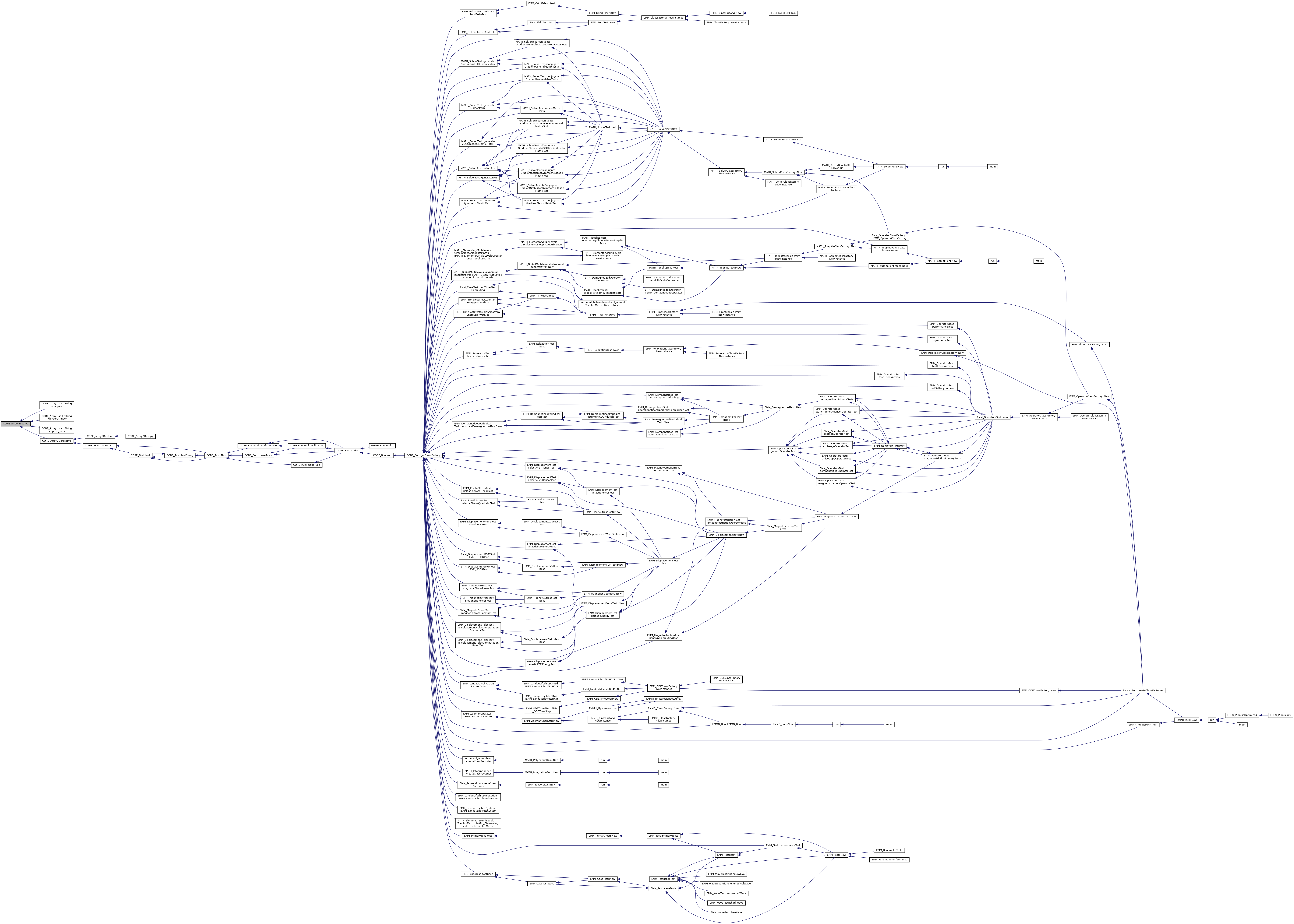
◆ resetOut()
|
inlinestaticinherited |
◆ resetThread()
|
inlinestaticinherited |
◆ reverse() [1/2]
return the reverse order
- Parameters
-
oder the order to reverse
- Returns
- the reverse order
References CORE_List::GE, CORE_List::GT, CORE_List::LE, and CORE_List::LT.
Referenced by CORE_List::compareString(), and CORE_ArrayList< tString >::reverse().

◆ reverse() [2/2]
|
inherited |
reverse the array
Referenced by CORE_ArrayList< tString >::exists().

◆ search() [1/2]
|
staticinherited |
search the value in values array ordered in order
- Parameters
-
values the values n the size of values order the type of order of the values value : the value to search index the return index of the value
- Returns
- false if the value dos not exists
Referenced by CORE_ArrayList< tString >::search(), and CORE_ArrayList< tString >::sort().

◆ search() [2/2]
|
inlineinherited |
search the value in values vector ordered in order
- Parameters
-
value the value to search index the return index of the value if found
- Returns
- false if the value dos not exists
◆ set() [1/3]
|
inline |
set the object at the index i
◆ set() [2/3]
|
inlineinherited |
set the value of the array at index i
- Parameters
-
i index of the array v the value
Referenced by CORE_Map< Key, Value >::getValues().

◆ set() [3/3]
|
inlineinherited |
This+=alpha.Y.
- Parameters
-
alpha real value Y array value
◆ setCapacityFactor()
|
inlineinherited |
set the capacity factor
n: is the multiplky capacity factor
Referenced by CORE_ArrayList< tString >::copy(), and CORE_Test::testArray2D().
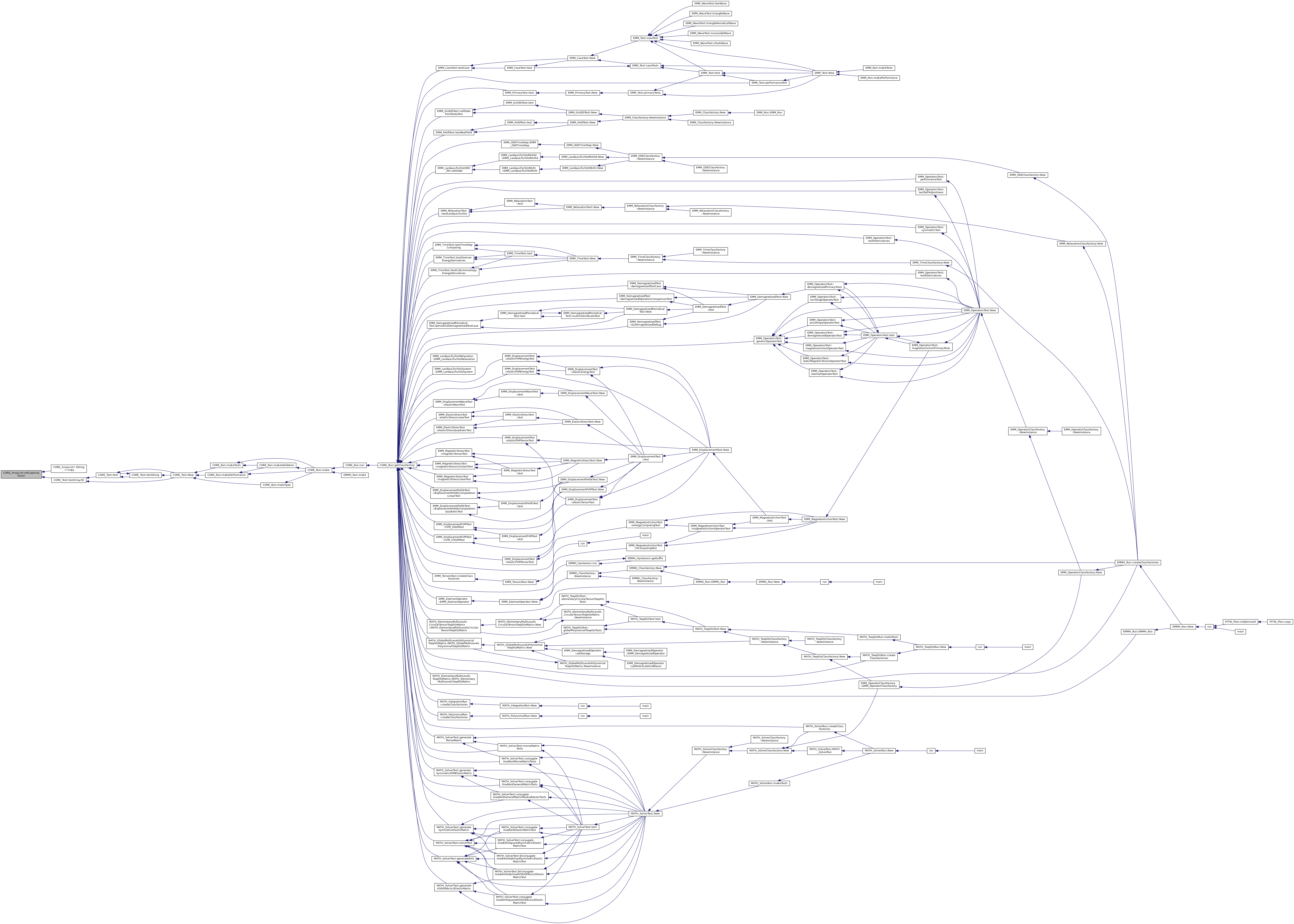
◆ setIsMemoryChecked()
|
inlinestaticinherited |
set if the memory checking is used
- Parameters
-
v : true to check memory
Referenced by main().

◆ setOrder()
|
inlineinherited |
set the oder
Referenced by CORE_ArrayList< tString >::copy(), and CORE_ArrayList< tString >::sort().

◆ setOut()
|
inlinestaticinherited |
◆ setSize() [1/2]
| void CORE_Array3D< T >::setSize | ( | const tUIndex & | n, |
| const tUIndex & | p, | ||
| const tUIndex & | q | ||
| ) |
set the size of the array
References CORE_Array3D< T >::mSize, and CORE_Array< T >::setSize().
Referenced by CORE_Array3D< T >::clear(), and CORE_Array3D< T >::New().


◆ setSize() [2/2]
|
inlineinherited |
set the size
- Parameters
-
n size of the array allocate the array of the capacity of the array is not big enough
Referenced by CORE_Array2D< T >::addRow(), EMM_WaveTest::barWave(), MATH_ElementaryMultiLevelsToeplitzMatrix::buildColumnLeadingDimensions(), MATH_GlobalMultiLevelsPolynomialToeplitzMatrix::buildColumnLeadingDimensions(), MATH_ElementaryMultiLevelsCircularTensorToeplitzMatrix::buildLeadingDimensions(), MATH_ElementaryMultiLevelsToeplitzMatrix::buildRowLeadingDimensions(), MATH_GlobalMultiLevelsPolynomialToeplitzMatrix::buildRowLeadingDimensions(), EMMG_RealField::cellDataToPointData(), EMM_MatterField::clear(), FFTW_MultiLevelsDFT::clear(), MATH_ElementaryMultiLevelsPolynomialToeplitzMatrix::computeSpectralSpaceSizePerDimension(), MATH_ElementaryMultiLevelsCircularTensorToeplitzMatrix::computeSpectralSpaceSizePerDimension(), MATH_ElementaryMultiLevelsCircularToeplitzMatrix::computeSpectralSpaceSizePerDimension(), EMM_WaveFDMTest::computeWaveAtFirstTime(), EMM_WaveFEMTest::computeWaveAtFirstTime(), EMM_WaveFDMTest::computeWaveAtPreviousTime(), CORE_Array< tCellFlag >::CORE_Array(), EMMG_SLDemagnetizedOperator::discretize(), EMMG_RealField::dotArray(), EMM_TensorsTest::doubleDotCrossDoubleDotScalarTests(), EMM_TensorsTest::doubleDotCrossProductTests(), EMM_TensorsTest::doubleDotCrossSquaredScalarTests(), EMM_TensorsTest::doubleDotProductTests(), MATH_ToeplitzTest::emicrom411ncTest(), MATH_ToeplitzTest::emicrom411Test(), MATH_ToeplitzTest::emicrom441Test(), MATH_ToeplitzTest::emicrom444Test(), MATH_ToeplitzTest::emicromTest(), EMM_LandauLifschitzFunction::EMM_LandauLifschitzFunction(), EMM_Matter::EMM_Matter(), EMM_MatterField::EMM_MatterField(), EMMH_Hysteresis::EMMH_Hysteresis(), FFTW_MultiLevelsDFT::FFTW_MultiLevelsDFT(), CORE_MorseArray< tUChar >::fitToSize(), EMM_MatterField::getMatterParameterDistribution(), FFTW_MultiDFTs::getSize(), CORE_Map< Key, Value >::getValues(), EMMH_HysteresisTest::hysteresisCycleTest(), EMMH_HysteresisFile::load(), EMM_DisplacementWaveTest::loadData(), EMM_Input::loadFieldFromAIMFile(), EMM_MatterField::loadFromANIFile(), EMM_Array< tCellFlag >::loadFromFile(), EMM_MatterField::loadFromLOCFile(), MATH_Integration::MATH_Integration(), CORE_MorseArray< tUChar >::MergeMorseArray(), CORE_MorseArray< tUChar >::MergeMorseArrays(), EMM_DemagnetizedPeriodicalTest::multiSDGridScaleTest(), EMMG_RealField::norm(), EMMG_RealField::pointDataToCellData(), CORE_ArrayList< tString >::push_back(), EMMH_Hysteresis::run(), CORE_Array< tCellFlag >::set(), EMM_LandauLifschitzFunction::setBetaParameter(), MATH_Integration::setBounds(), MATH_ArrayVector::setCapacity(), MATH_MaskArrayVector::setCapacity(), EMMH_Hysteresis::setFinalExternalMagneticExcitationField(), EMMH_Hysteresis::setInitialExternalMagneticExcitationField(), FFTW_MultiLevelsDFT::setLevels(), MATH_MultiLevelsToeplitzMatrix::setLevels(), CORE_Array2D< T >::setRowSize(), MATH_FullMatrix::setSize(), CORE_Array3D< T >::setSize(), EMMG_RealField::setSize(), MATH_ArrayVector::setSize(), CORE_Array2D< T >::setSize(), MATH_MaskArrayVector::setSize(), EMM_MatterField::setSize(), CORE_MorseArray< tUChar >::setSize(), CORE_MorseArray< tUChar >::setUniformSize(), CORE_Array< tCellFlag >::setValues(), EMM_WaveTest::sharkWave(), EMM_WaveTest::sinusoidalWave(), EMM_TensorsTest::squaredDoubleDotCrossScalarTests(), EMM_MorseArrayTest::test(), CORE_Test::testArray(), MATSGN_Test::testFFT02(), MATSGN_Test::testFFT03(), EMM_RelaxationTest::testNewM(), EMM_FieldTest::testRealArray(), MATH_ToeplitzTest::toeplitzTest(), EMM_BlockMassMatrix::toString(), EMM_WaveTest::trianglePeriodicalWave(), EMM_WaveTest::triangleWave(), EMM_Grid3D::updateLimitConditionOnPoints(), and MATH_MultiLevelsToeplitzMatrix::vectorProduct().

◆ setThis()
|
inlineprotectedinherited |
set this weak shared pointer called toDoAfterThis setting method
- Parameters
-
p : shared pointer of the class This
References CORE_Object::toDoAfterThisSetting().

◆ setThread()
|
inlinestaticinherited |
set the thread
- Parameters
-
thread the shared pointer to the thread
References null.
Referenced by EMM_Run::EMM_Run(), EMM_TensorsRun::EMM_TensorsRun(), and MATH_SolverRun::MATH_SolverRun().

◆ setValue()
|
inlineinherited |
set the value of the array at index i
- Parameters
-
i index of the array v the value
Referenced by EMM_TensorsTest::doubleDotCrossDoubleDotScalarTests(), EMM_Matter::setElasticTensor(), EMM_Matter::setMagneticTensor(), and EMM_TensorsTest::squaredDoubleDotCrossScalarTests().
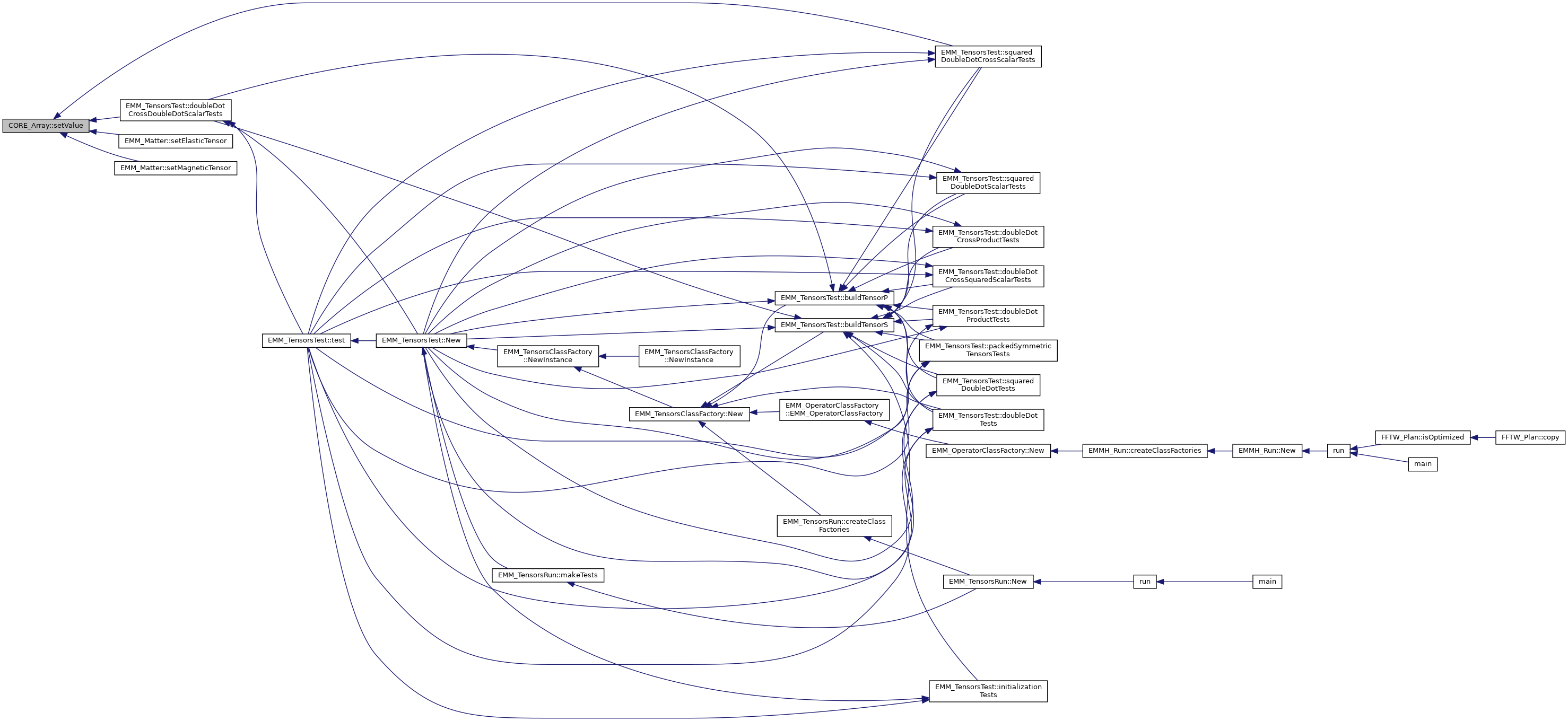
◆ setValues() [1/3]
|
inlineinherited |
set the values of the array by copying the n first values of pointer v
- Parameters
-
n size of pointer v v the pointer of values
Referenced by EMM_OperatorsTest::compareDiscretizedData(), CORE_Array3D< T >::copy(), CORE_Array2D< T >::copy(), CORE_Array< tCellFlag >::initArray(), EMM_DemagnetizedPeriodicalTest::multiSDGridScaleTest(), CORE_VectorReader::readVector(), MATH_FullMatrix::setValues(), MATH_ArrayVector::setValues(), CORE_Array2D< T >::setValues(), and EMM_MorseArrayTest::test().
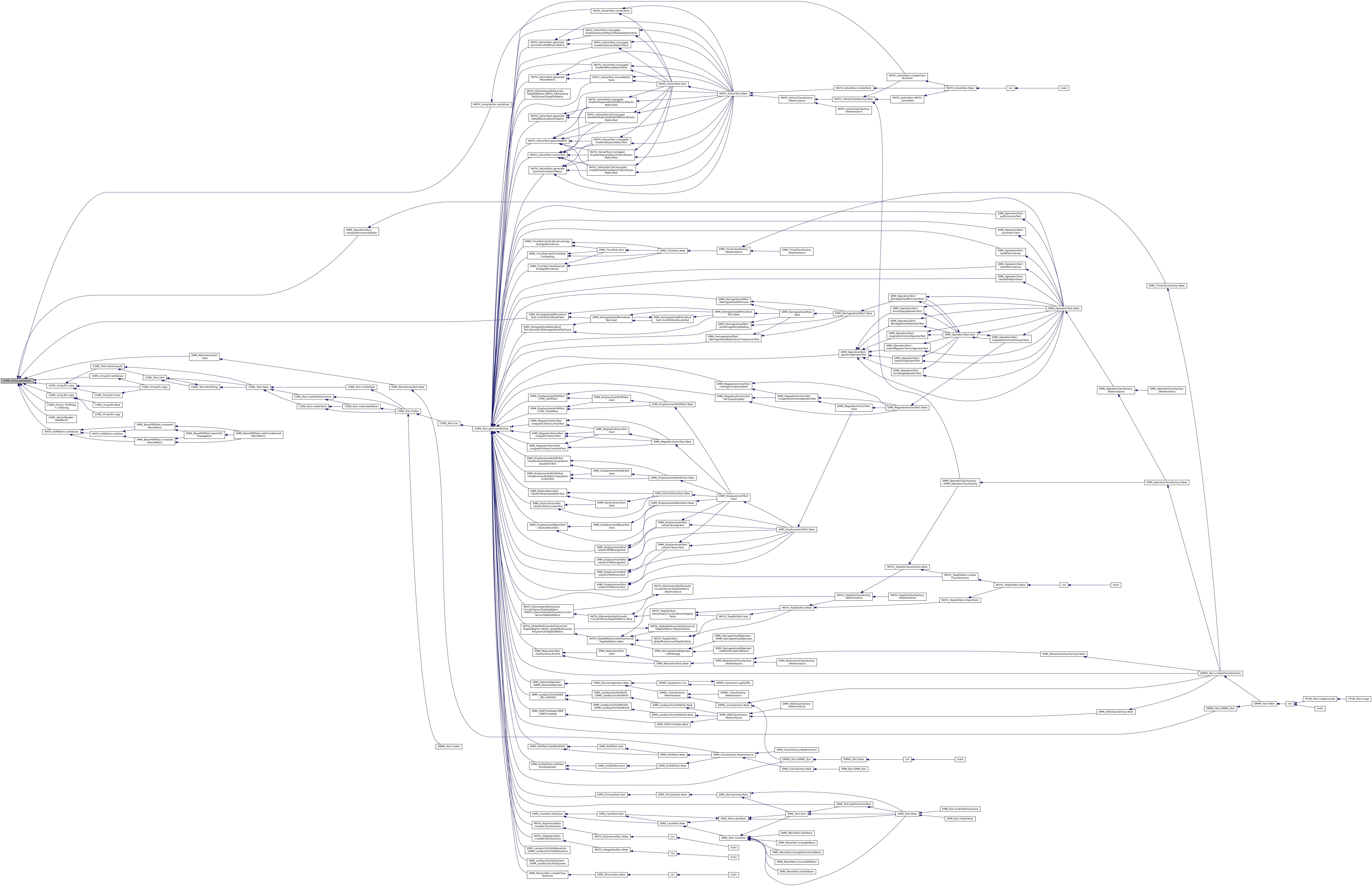
◆ setValues() [2/3]
|
inlineinherited |
set the values of the array by copying the vector
- Parameters
-
v the vector to copy
◆ setValues() [3/3]
|
inlineinherited |
copy the the values of v t o this
- Parameters
-
v the array to copy
◆ setValuesByReference()
|
inlineinherited |
set the the values by reference
- Parameters
-
n size of the array array value of the array
this array will not be deleted at the deleting of the class This.
Referenced by EMMG_SLSDXPeriodicMultiScale::computeMultiGridExcitationField(), EMMG_RealField::setFieldByReference(), MATH_ArrayVector::setValuesByReference(), MATH_MaskArrayVector::setValuesByReference(), CORE_Array2D< T >::setValuesByReference(), and CORE_Test::testArray().
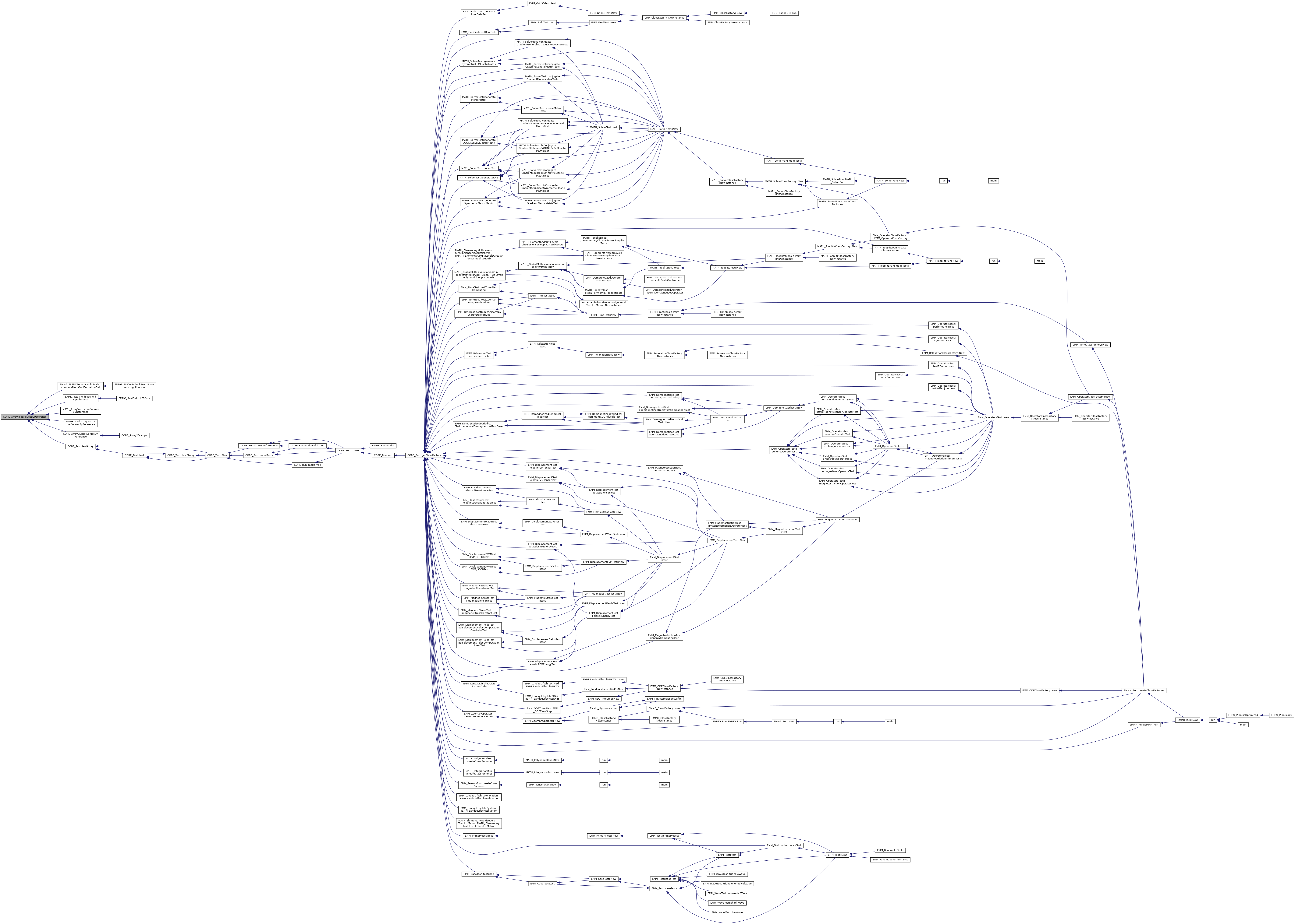
◆ sort() [1/3]
|
inlineinherited |
sort the array in an increasing order obj[i-1] is obj[i] with respect to order
- Parameters
-
order order for sorting
◆ sort() [2/3]
|
inlineinherited |
sort the array in an increasing order obj[i-1] is obj[i] with respect to getOrder
Referenced by CORE_ArrayList< tString >::sort().

◆ sort() [3/3]
|
staticinherited |
sort the array pointer
Sort the objects
◆ sub() [1/2]
|
inlineinherited |
This-=alpha.Y.
- Parameters
-
alpha real value Y array value
◆ sub() [2/2]
|
inlineinherited |
This-=Y.
- Parameters
-
Y array value
◆ sum()
|
inlineinherited |
get the sum of all the element
- Returns
- sum_i (*this)[i]^2
Referenced by EMMG_RealField::dot().

◆ swap()
|
inlineinherited |
swap the tow arrays param[in,out] f : the array to swap with
This is replace by the values of f and f is replaced by the values of this
◆ toDoAfterThisSetting()
|
inlineprotectedvirtualinherited |
method called after setThis() method this method can oly be called once.
Reimplemented in EMM_DisplacementOperator, EMM_DisplacementFVMOperator, EMM_GaussLegendreRelaxation, EMM_GradGaussLegendreRelaxation, and EMM_Object.
Referenced by CORE_Object::setThis().

◆ toString()
|
virtual |
turn the array into string
Reimplemented from CORE_Array< T >.
References CORE_Array3D< T >::mSize, CORE_Integer::toString(), CORE_String::toString(), tString, and tUIndex.
Referenced by CORE_Array3D< T >::getSize().


◆ transfertValuesByReference()
|
inlineinherited |
transfert the values of the array into this
- Parameters
-
array:array to transfert the values
- the values of this are desallocated
- the new values of this is set by reference to the value of the array
- the desallocation of the values of the array is disabled
Referenced by EMMG_RealField::cellDataToPointData(), and EMMG_RealField::pointDataToCellData().

Member Data Documentation
◆ EQ
|
staticinherited |
Referenced by CORE_ArrayList< tString >::search(), and CORE_Vector< T >::search().
◆ GE
|
staticinherited |
Referenced by CORE_List::reverse().
◆ GT
|
staticinherited |
Referenced by CORE_List::reverse(), and CORE_Test::testString().
◆ LE
|
staticinherited |
Referenced by CORE_List::reverse().
◆ LT
|
staticinherited |
◆ mSize
|
private |
◆ NEQ
|
staticinherited |
◆ NO_ORDER
|
staticinherited |
Referenced by CORE_ArrayList< tString >::CORE_ArrayList(), and CORE_ArrayList< tString >::sort().
The documentation for this class was generated from the following files:



 1.8.13
1.8.13